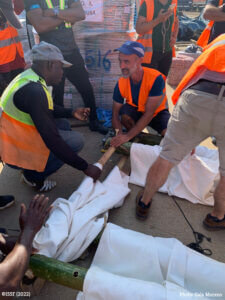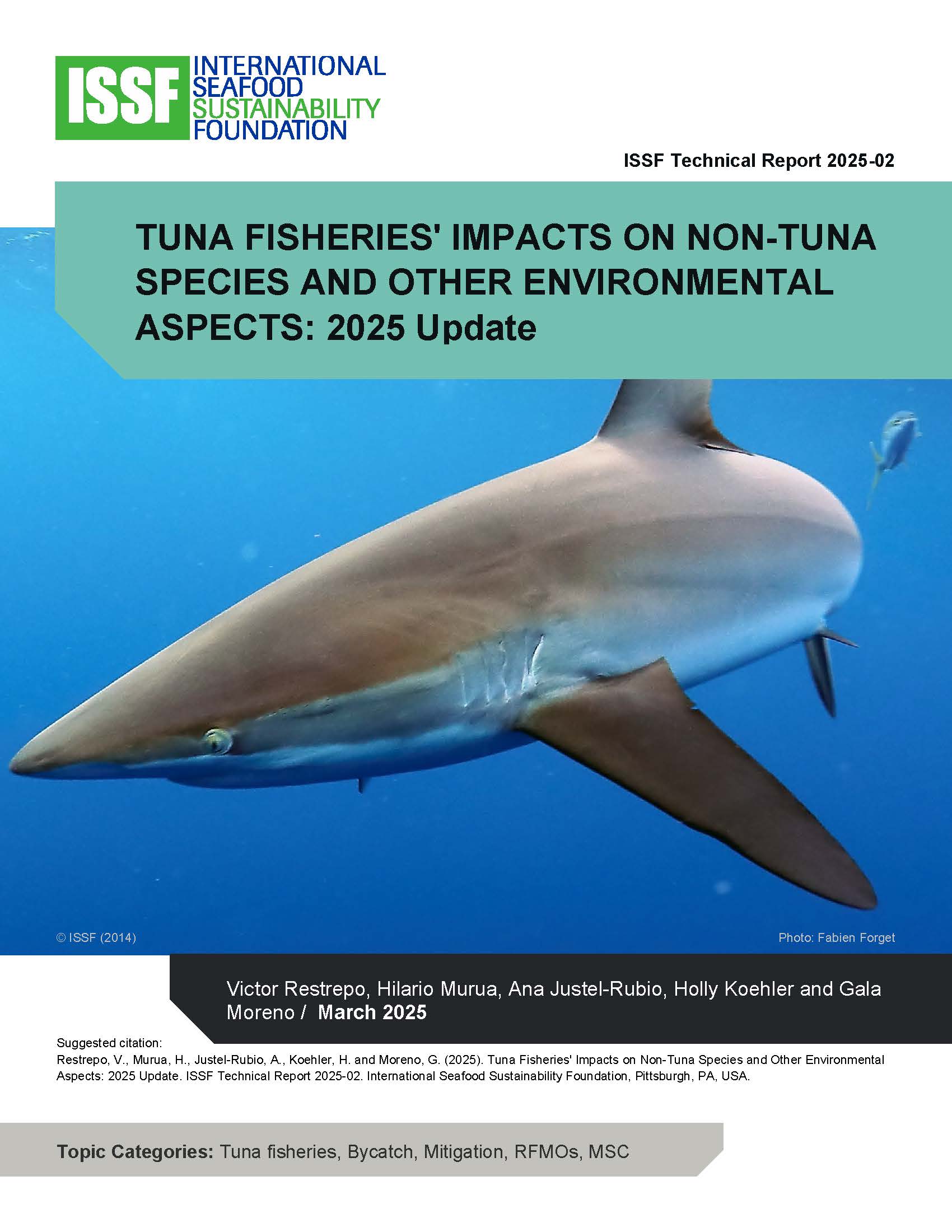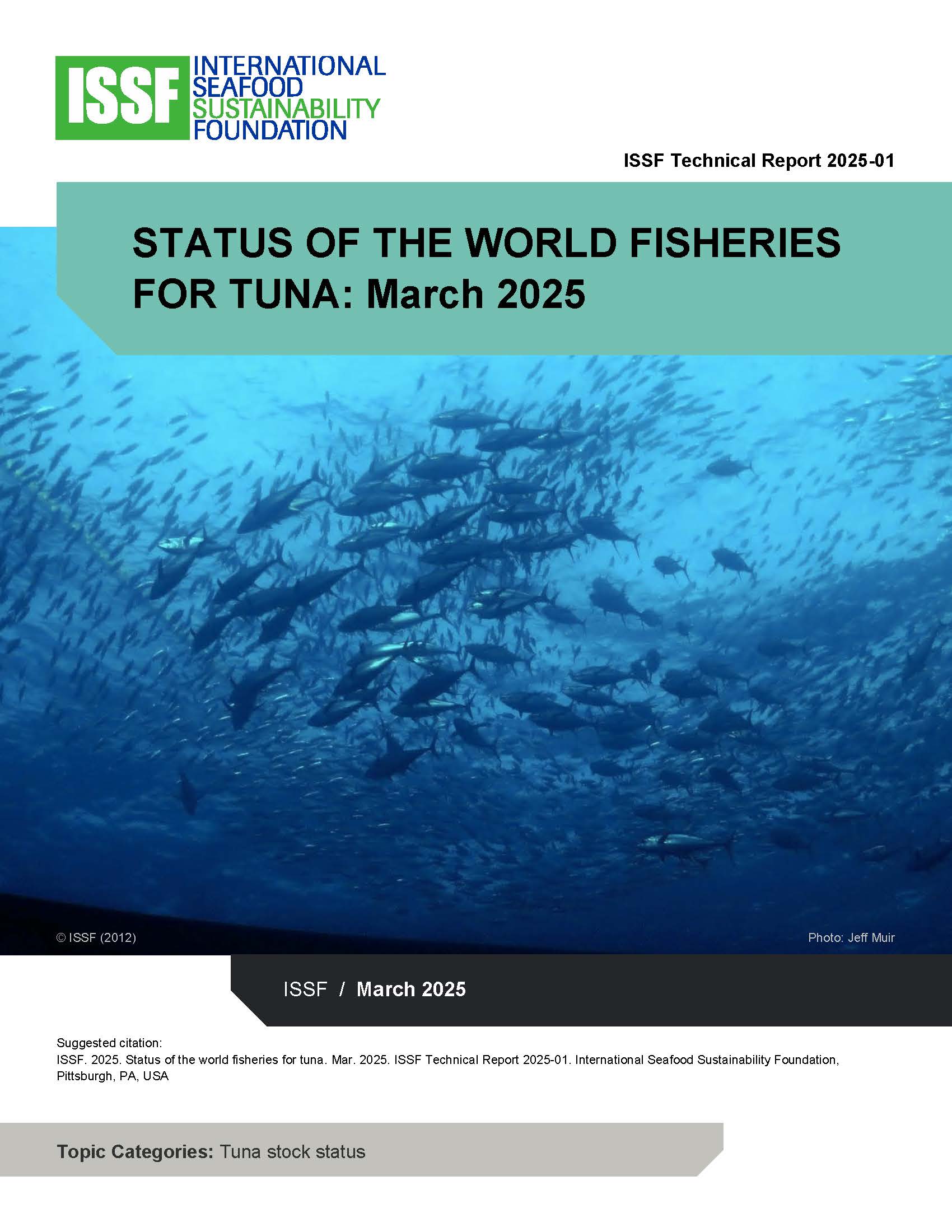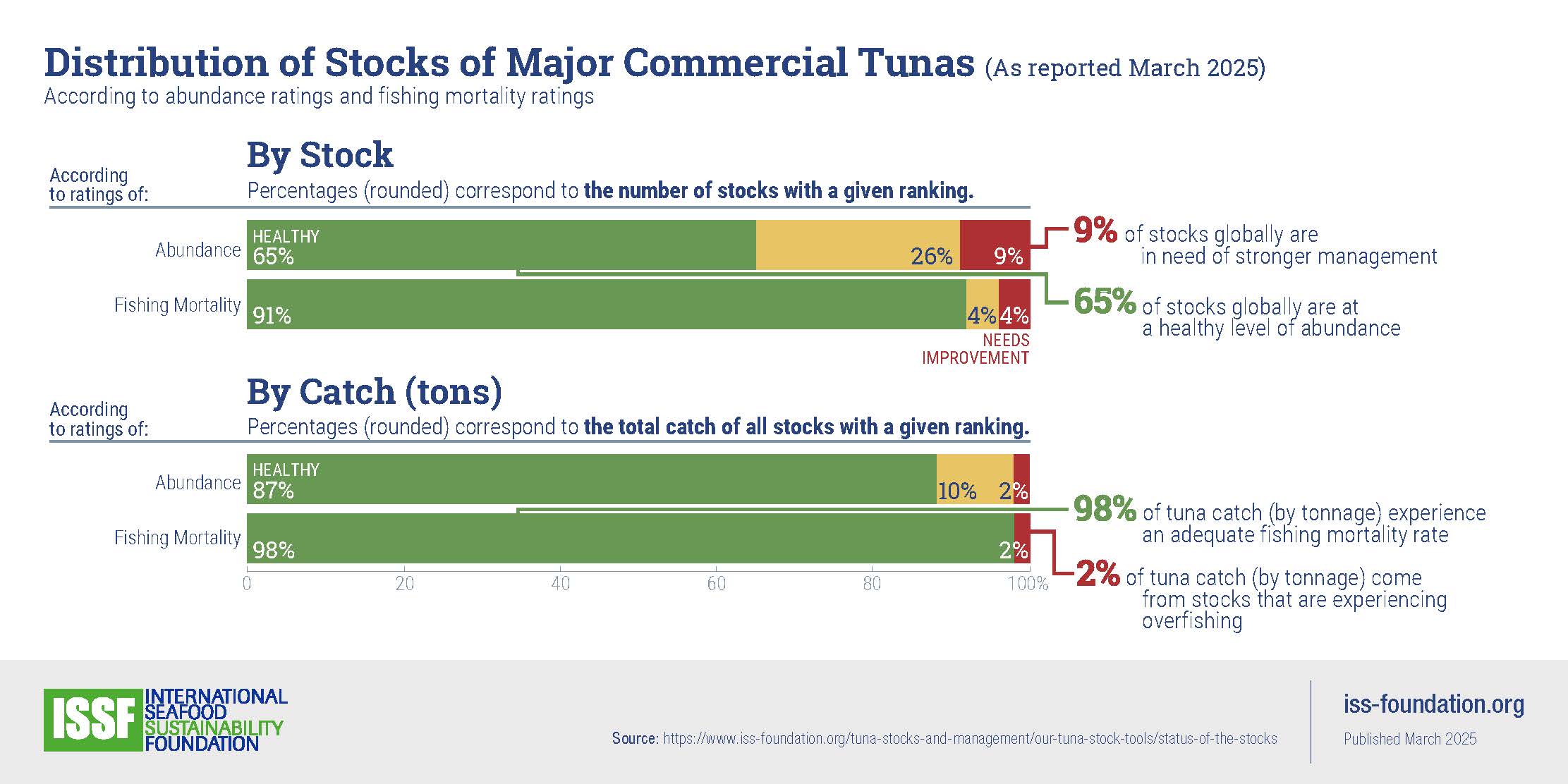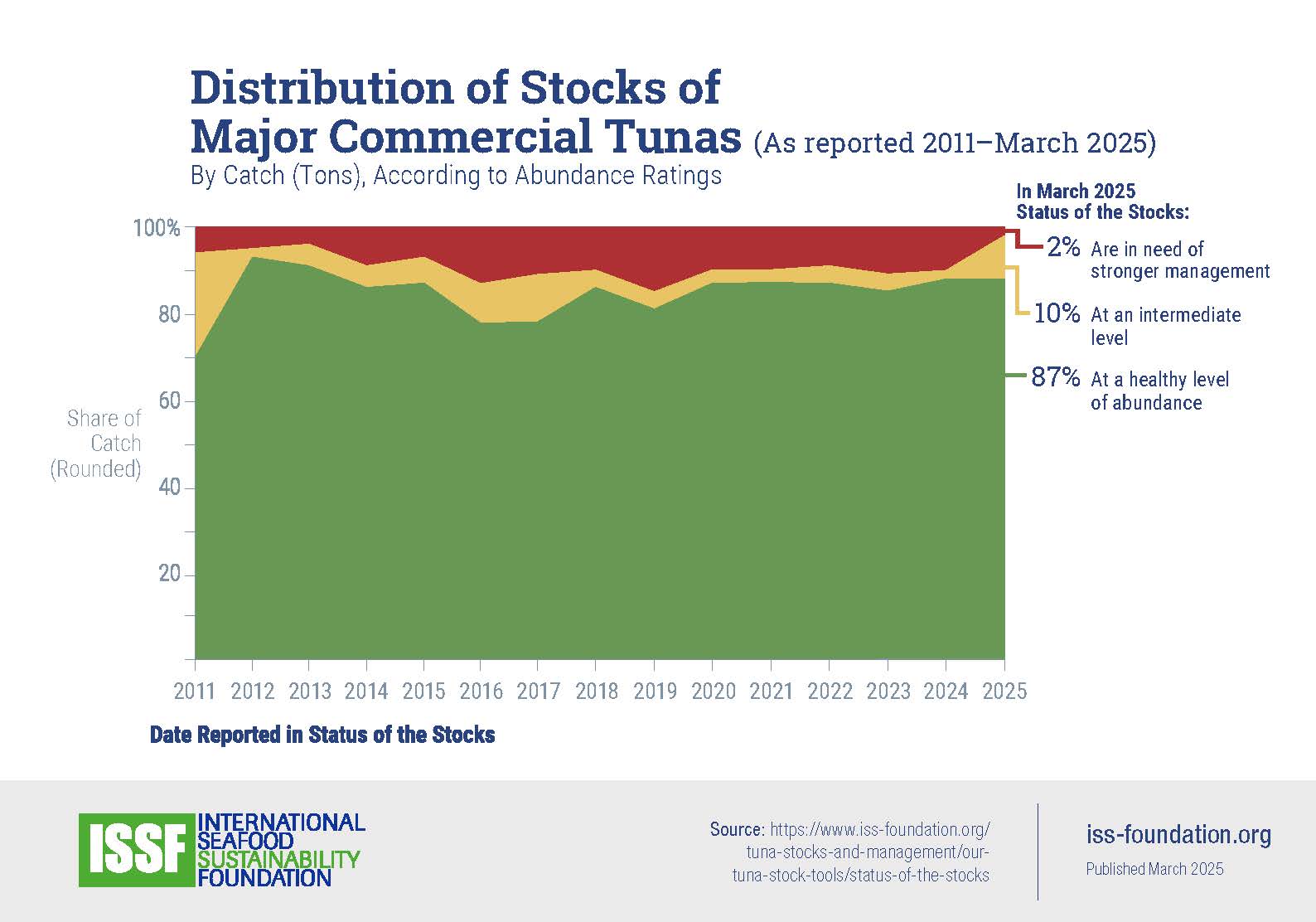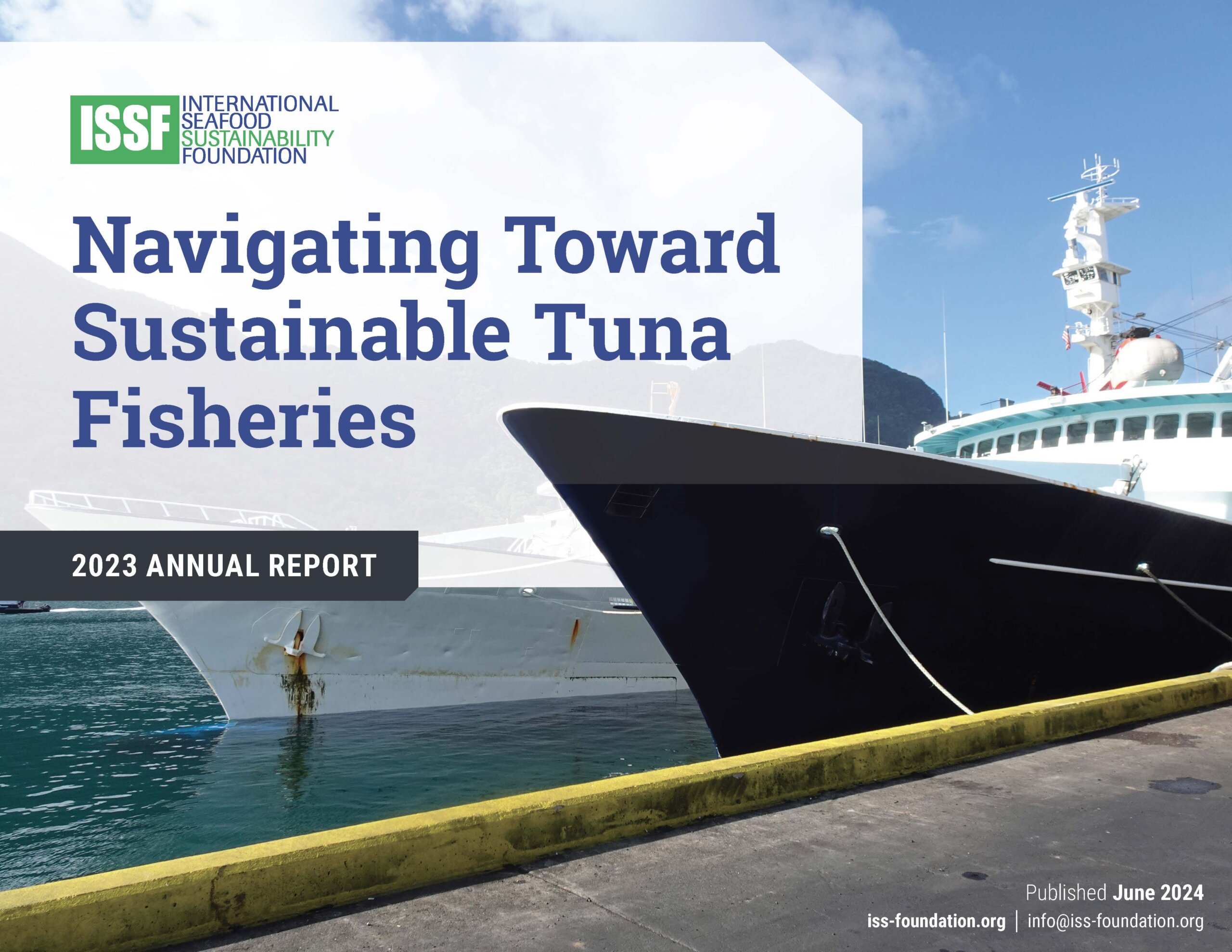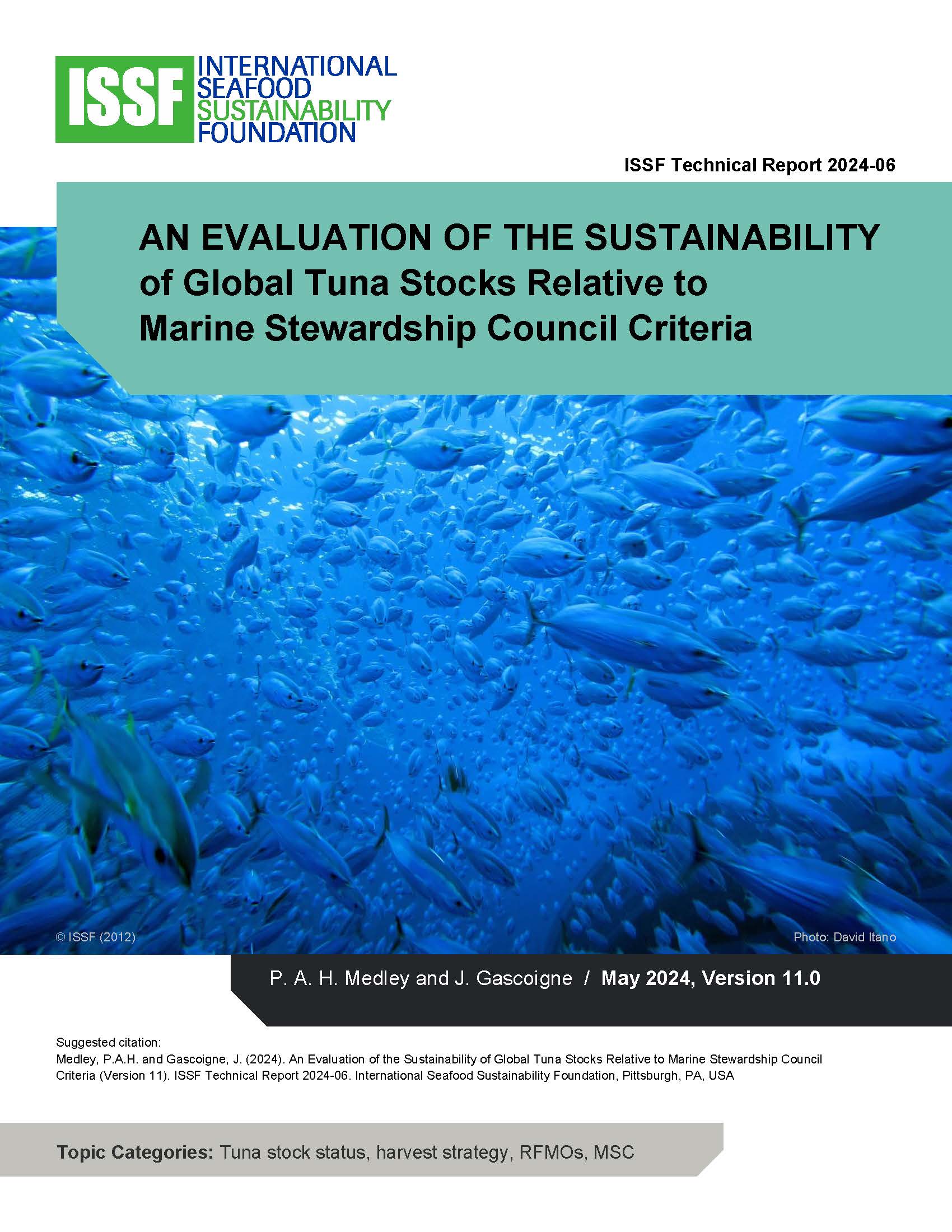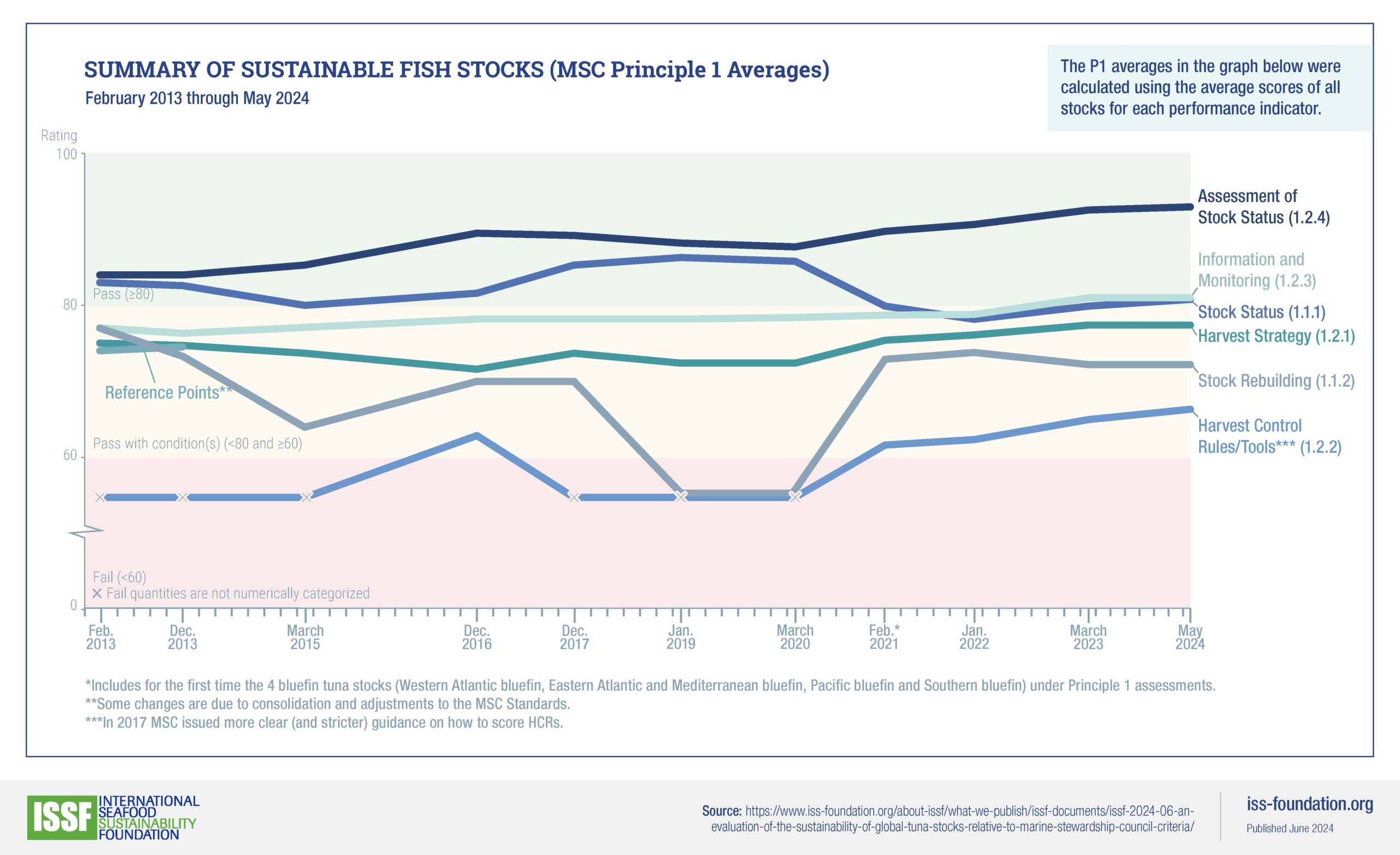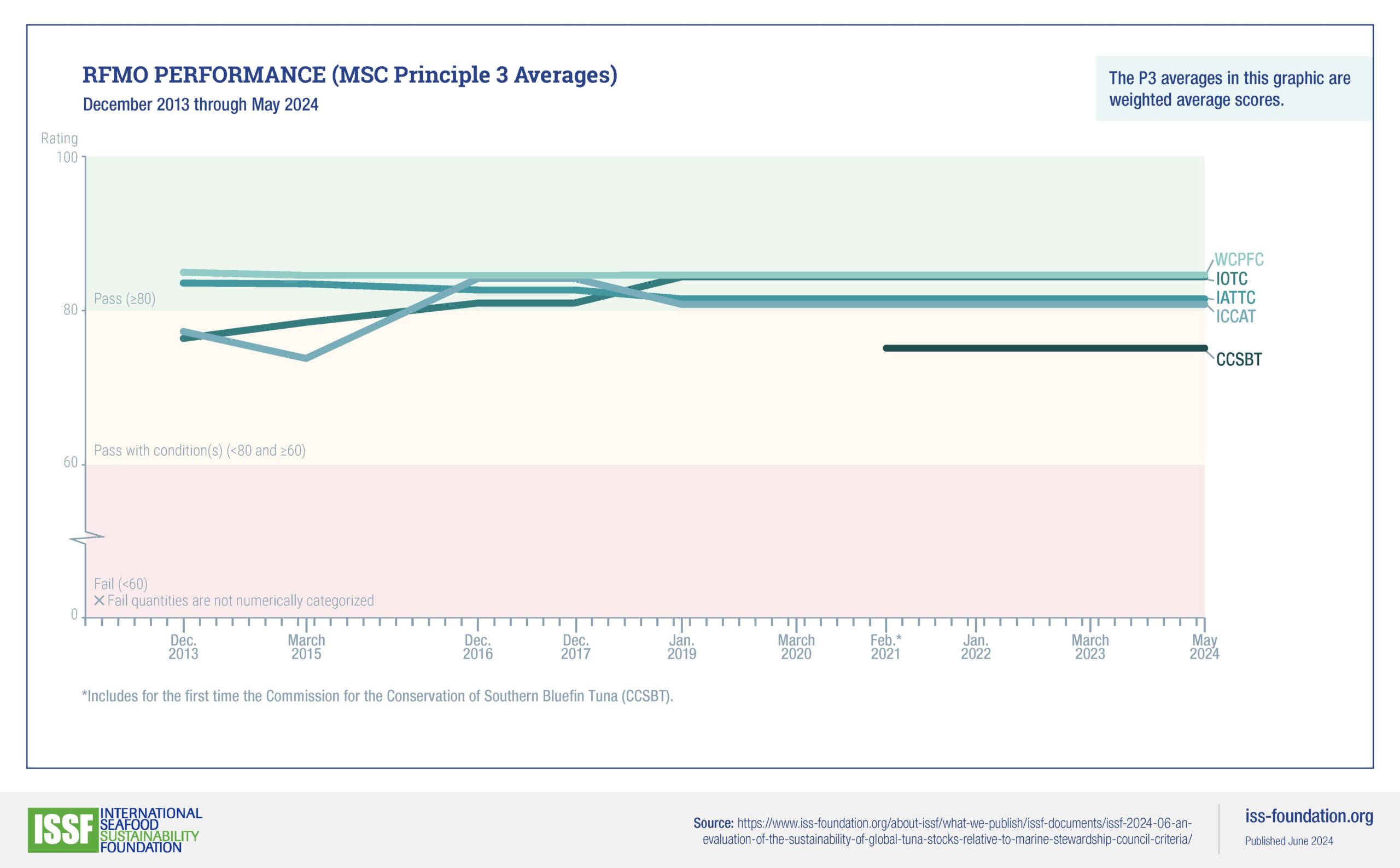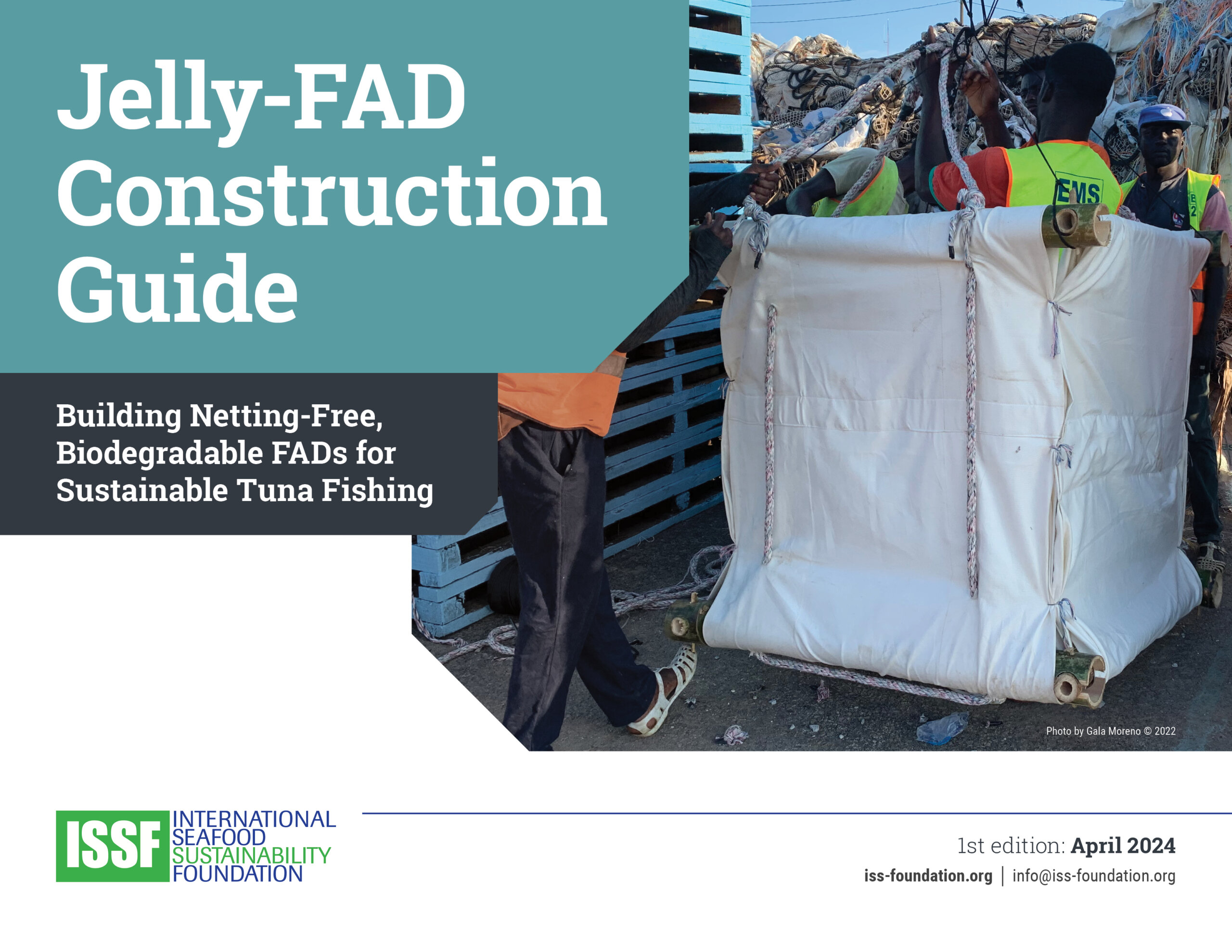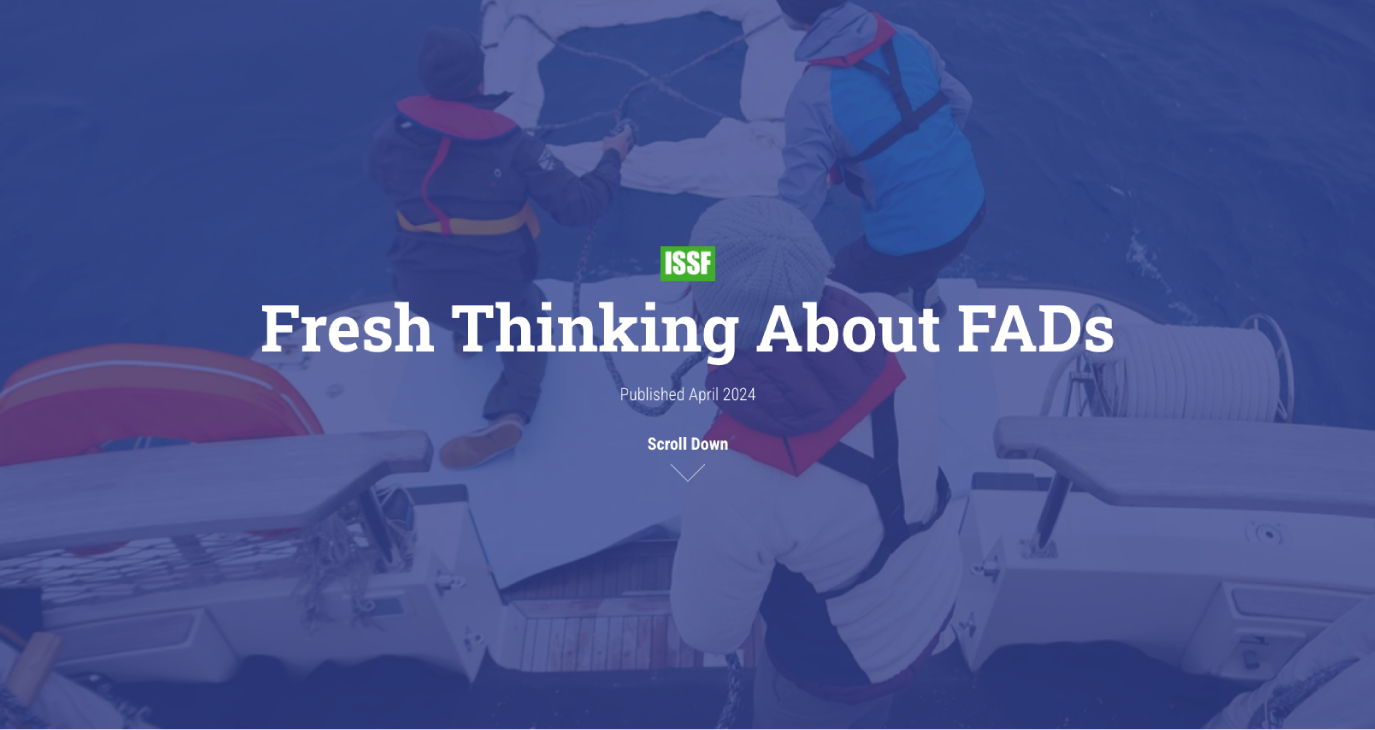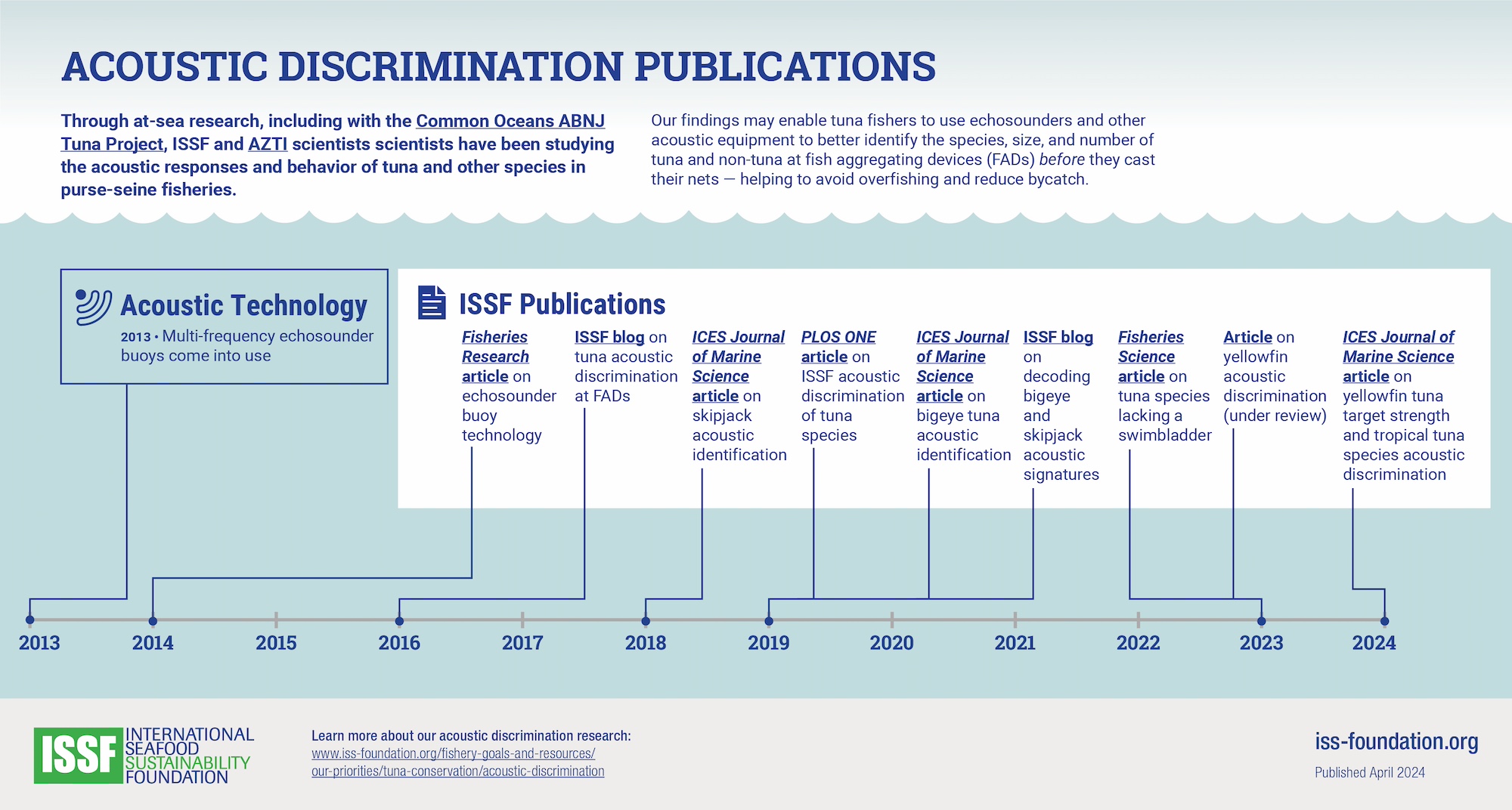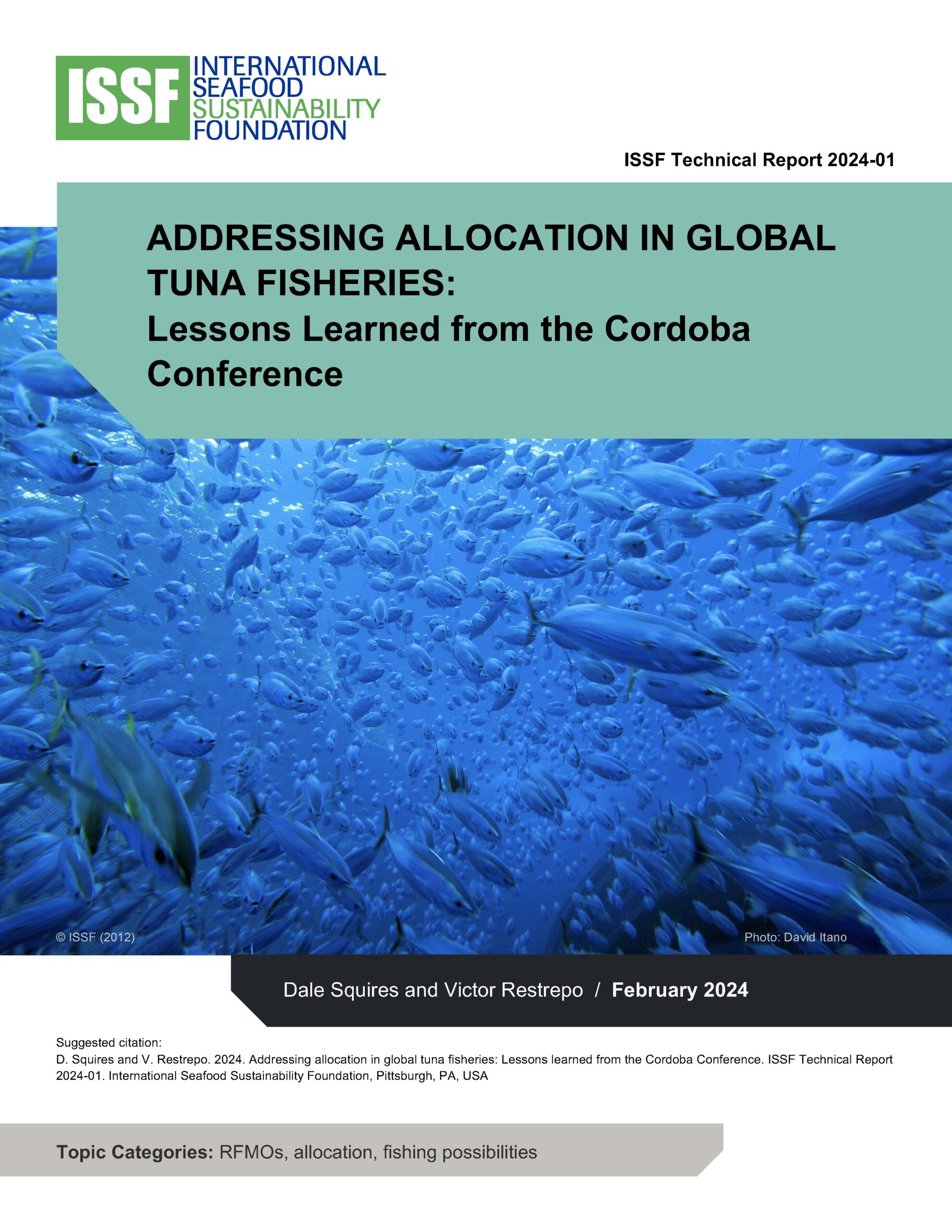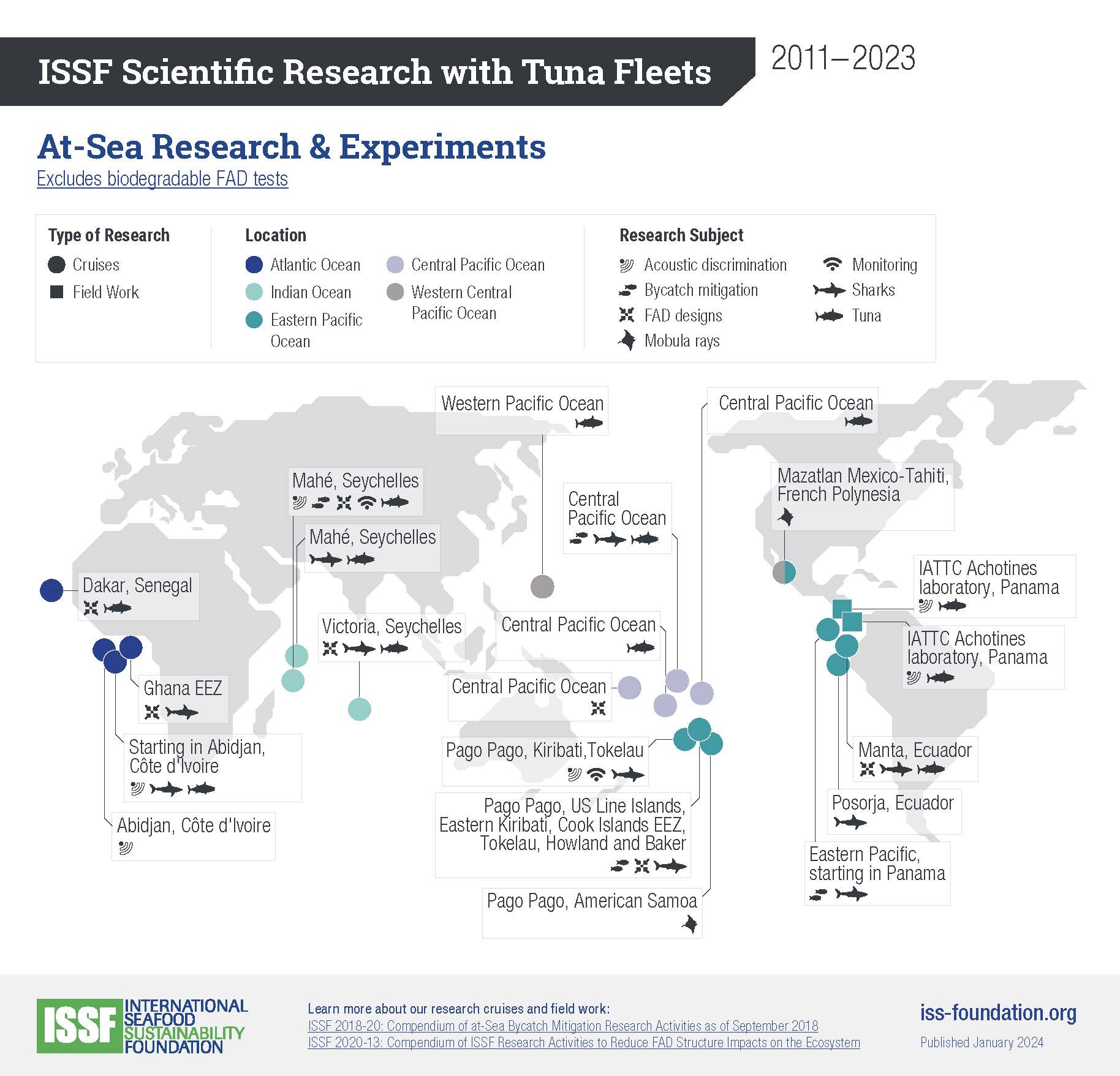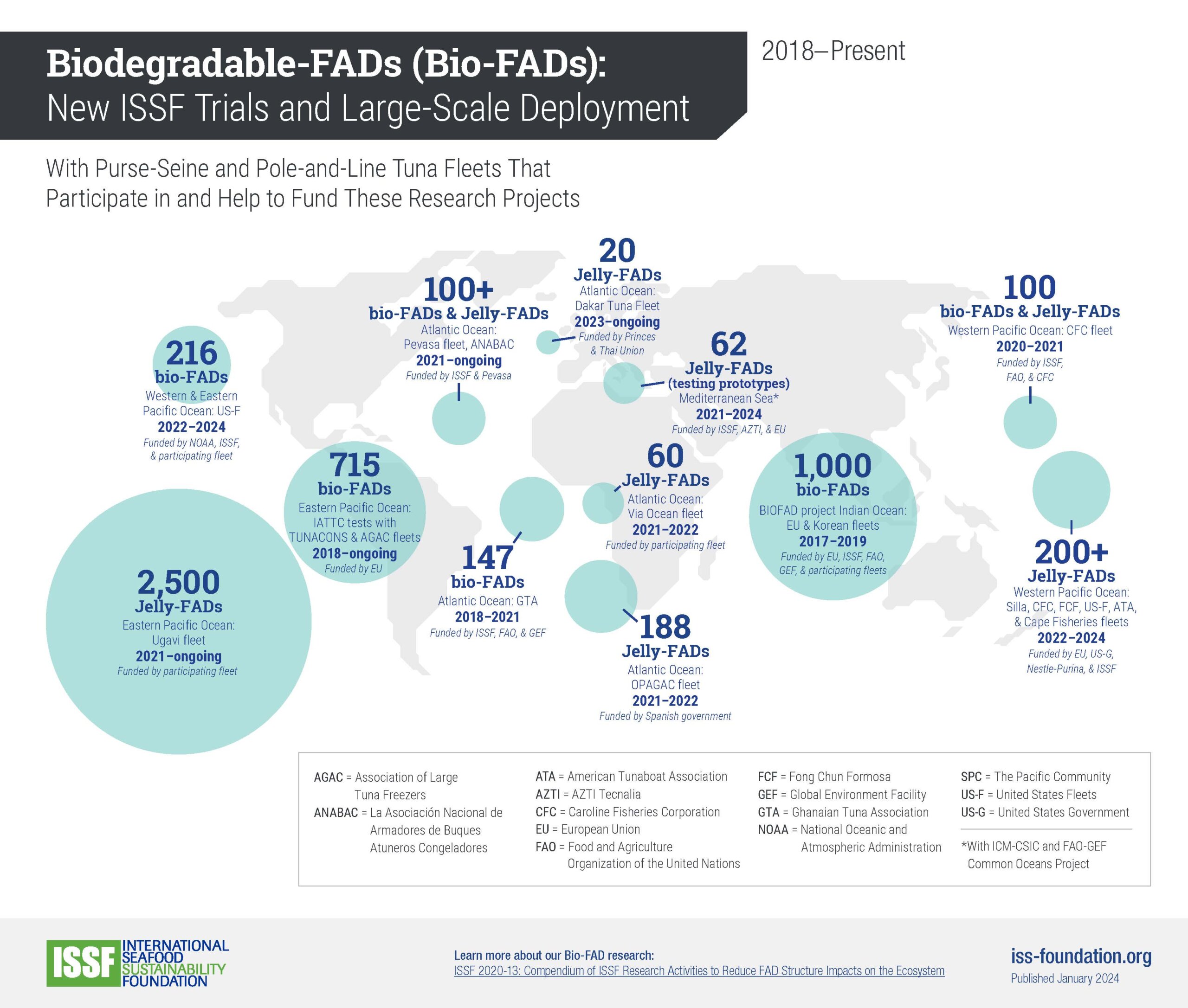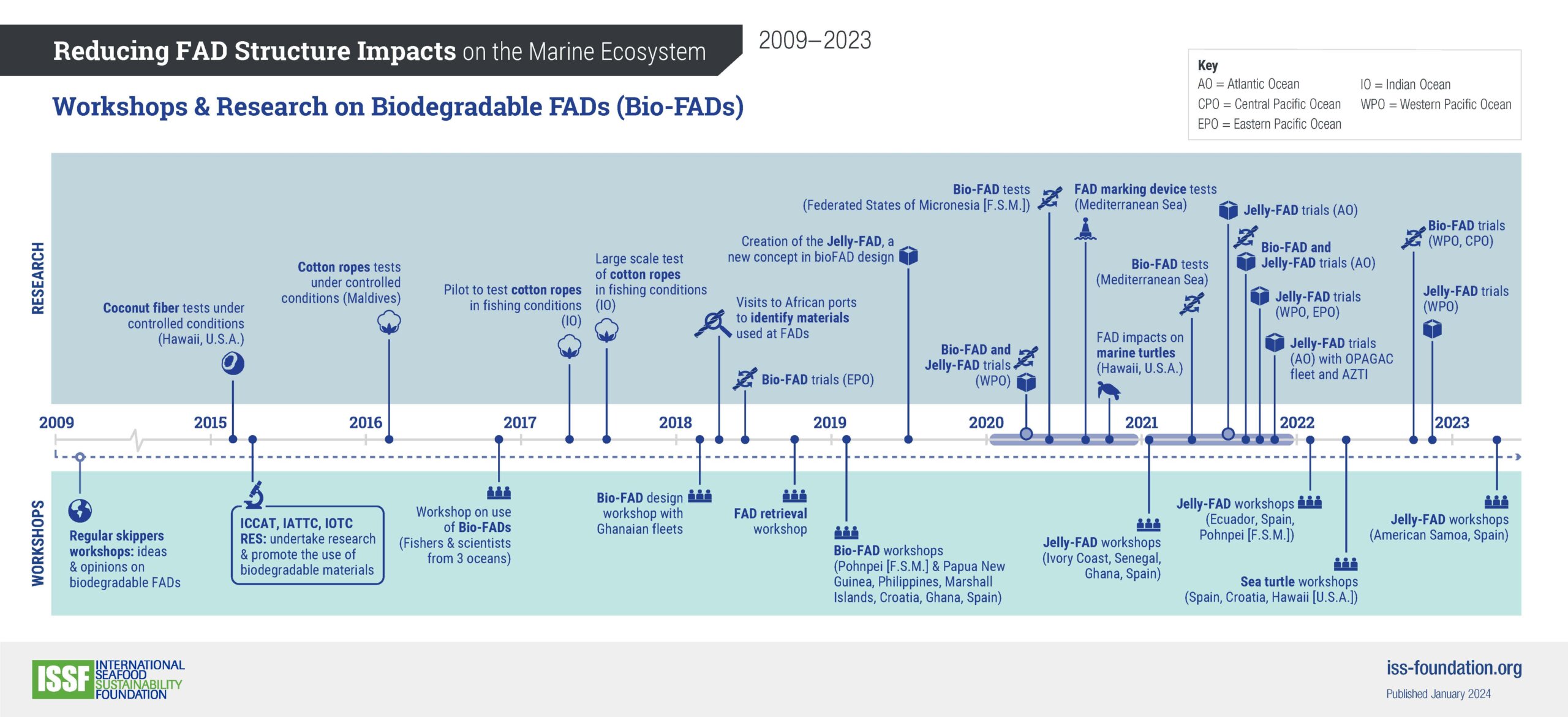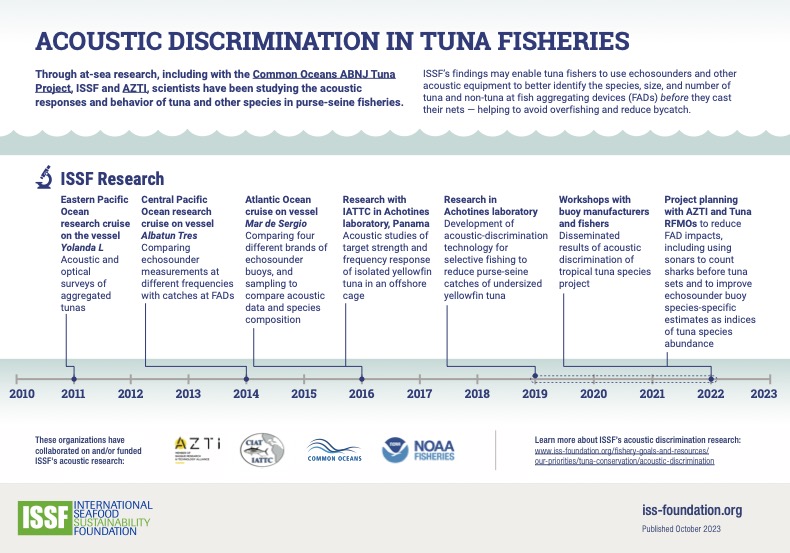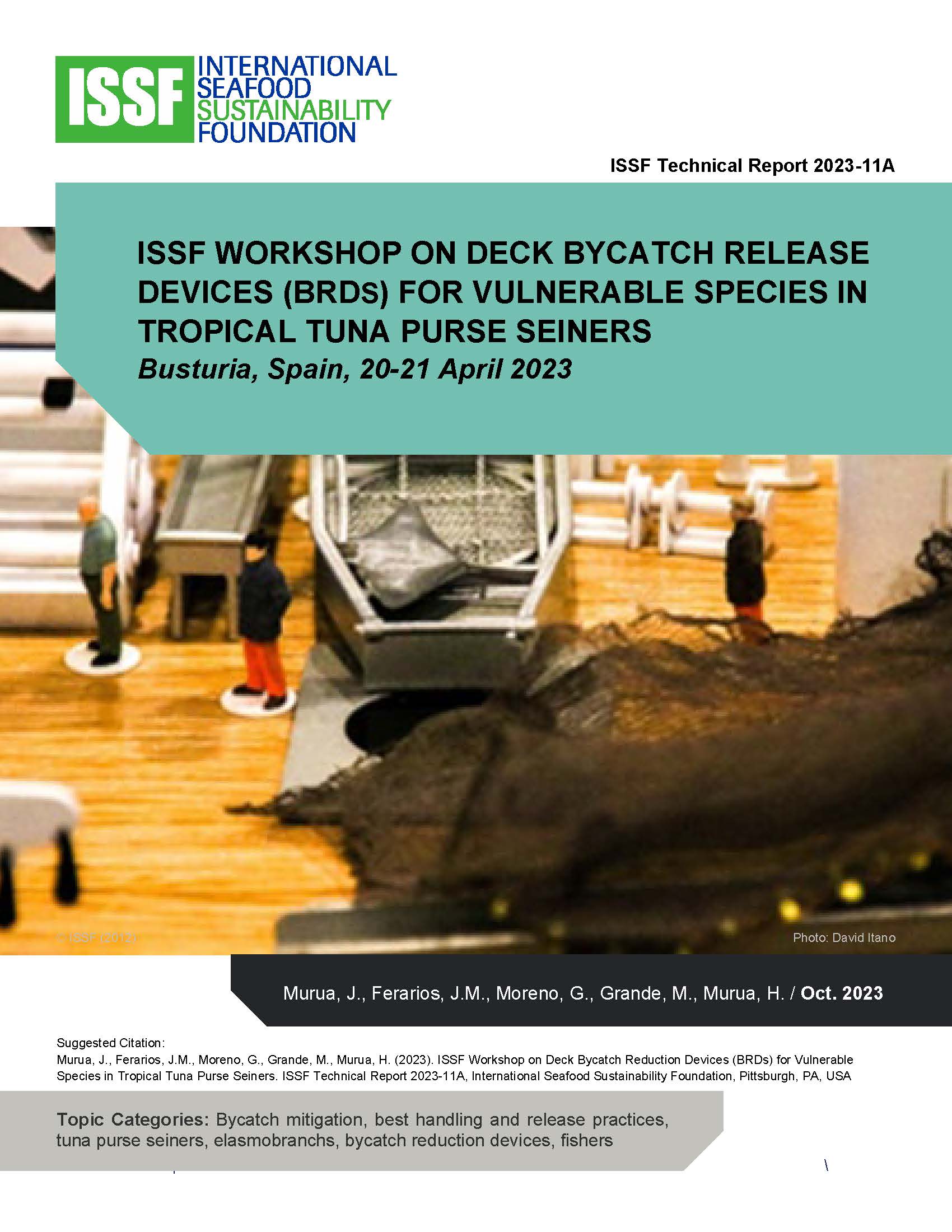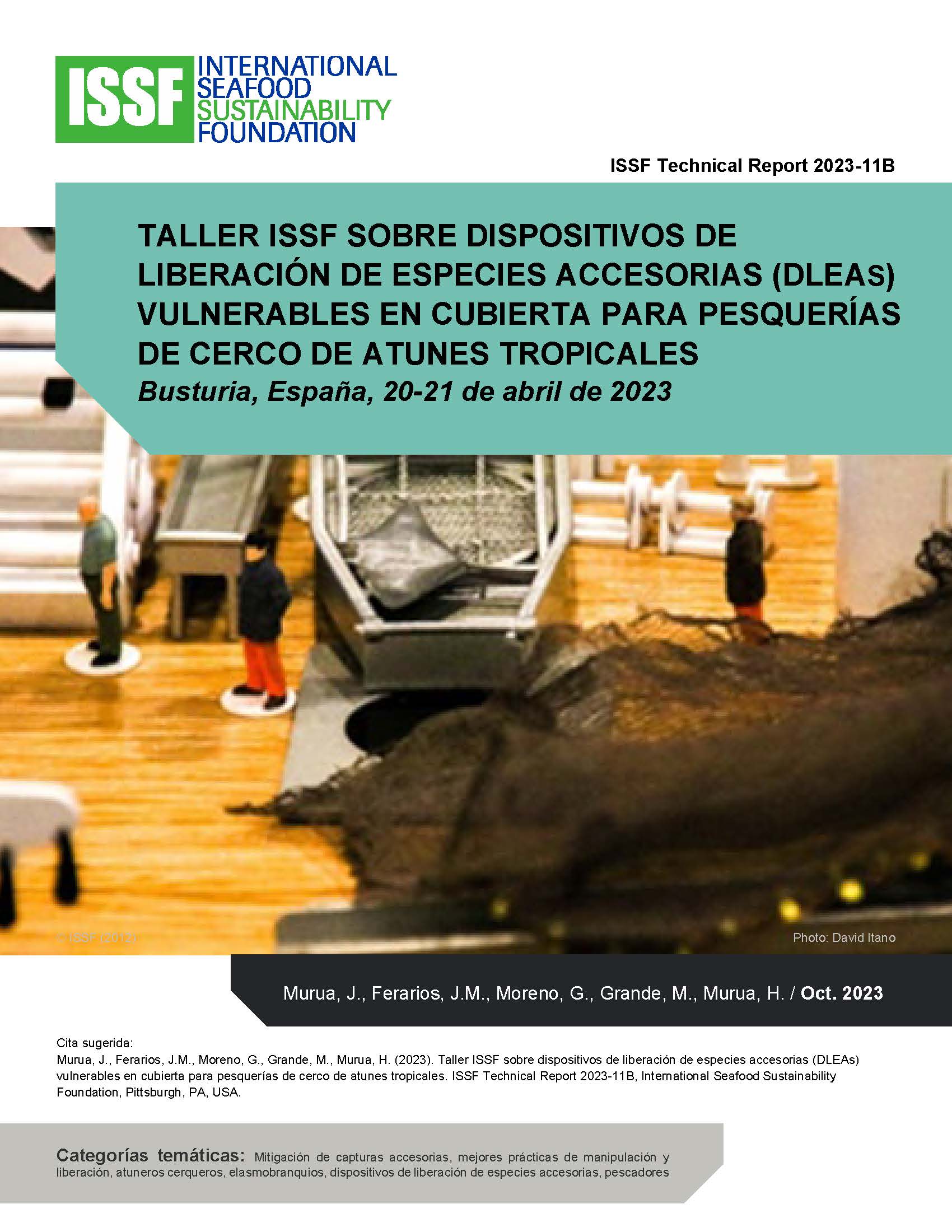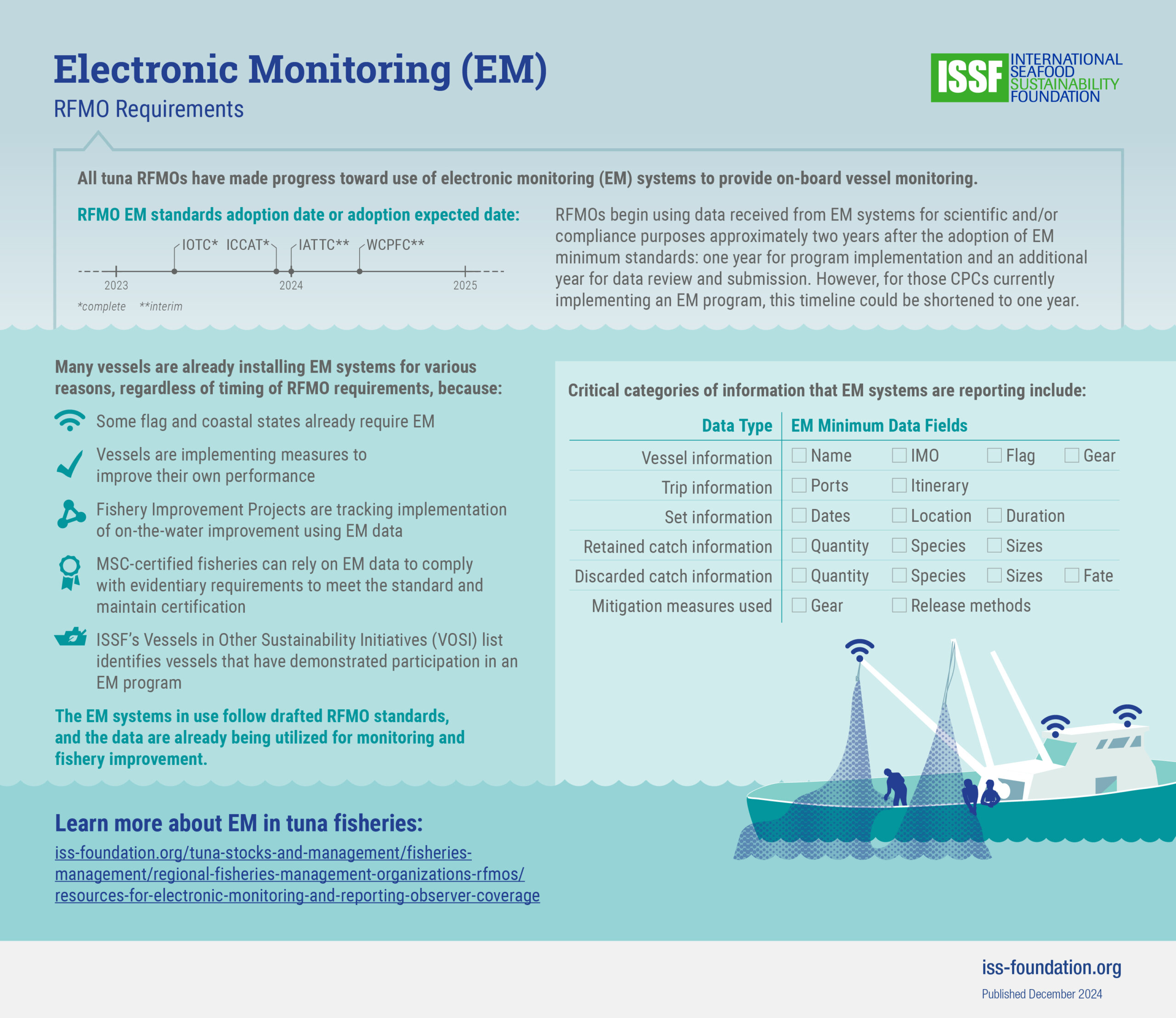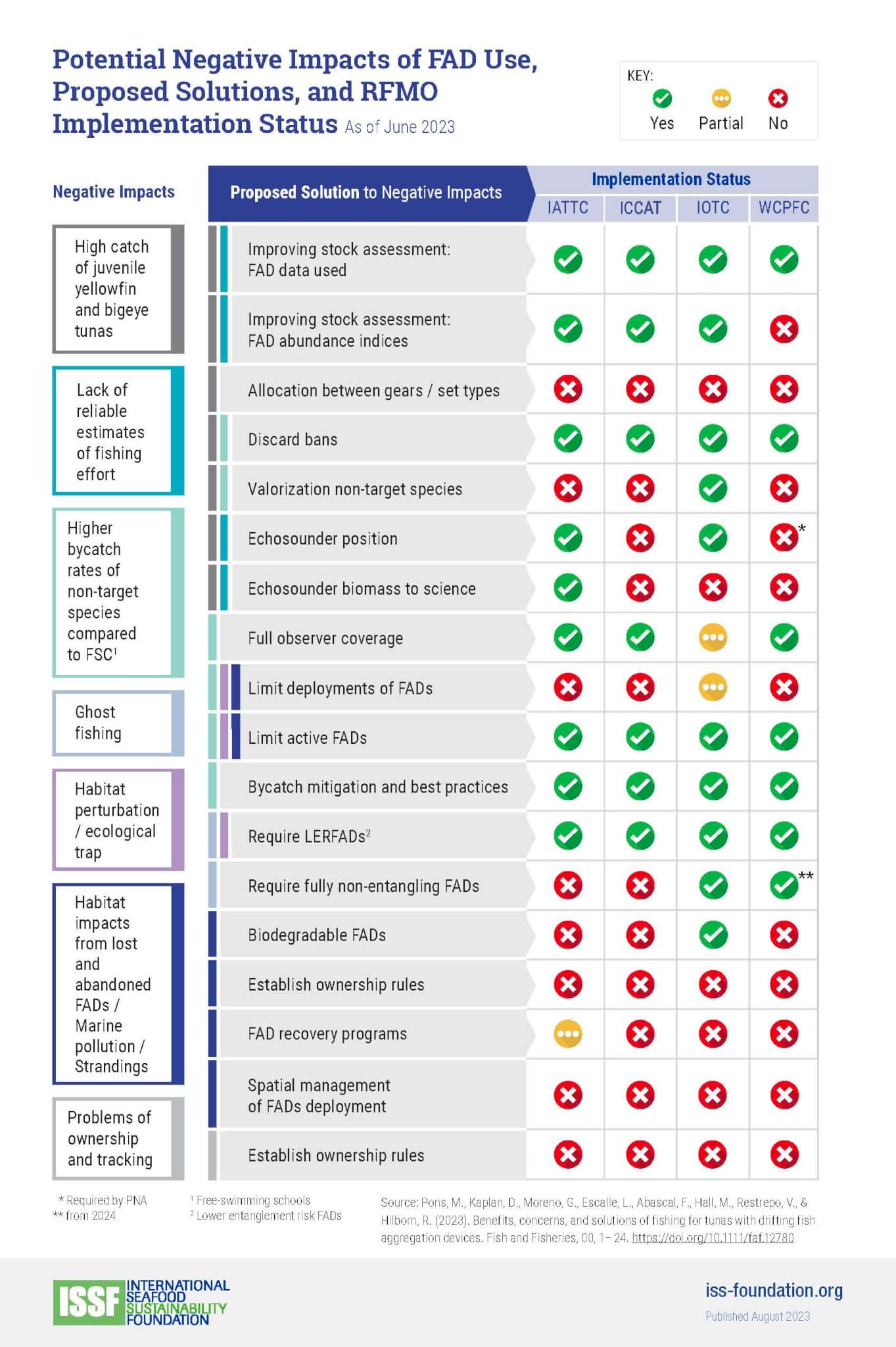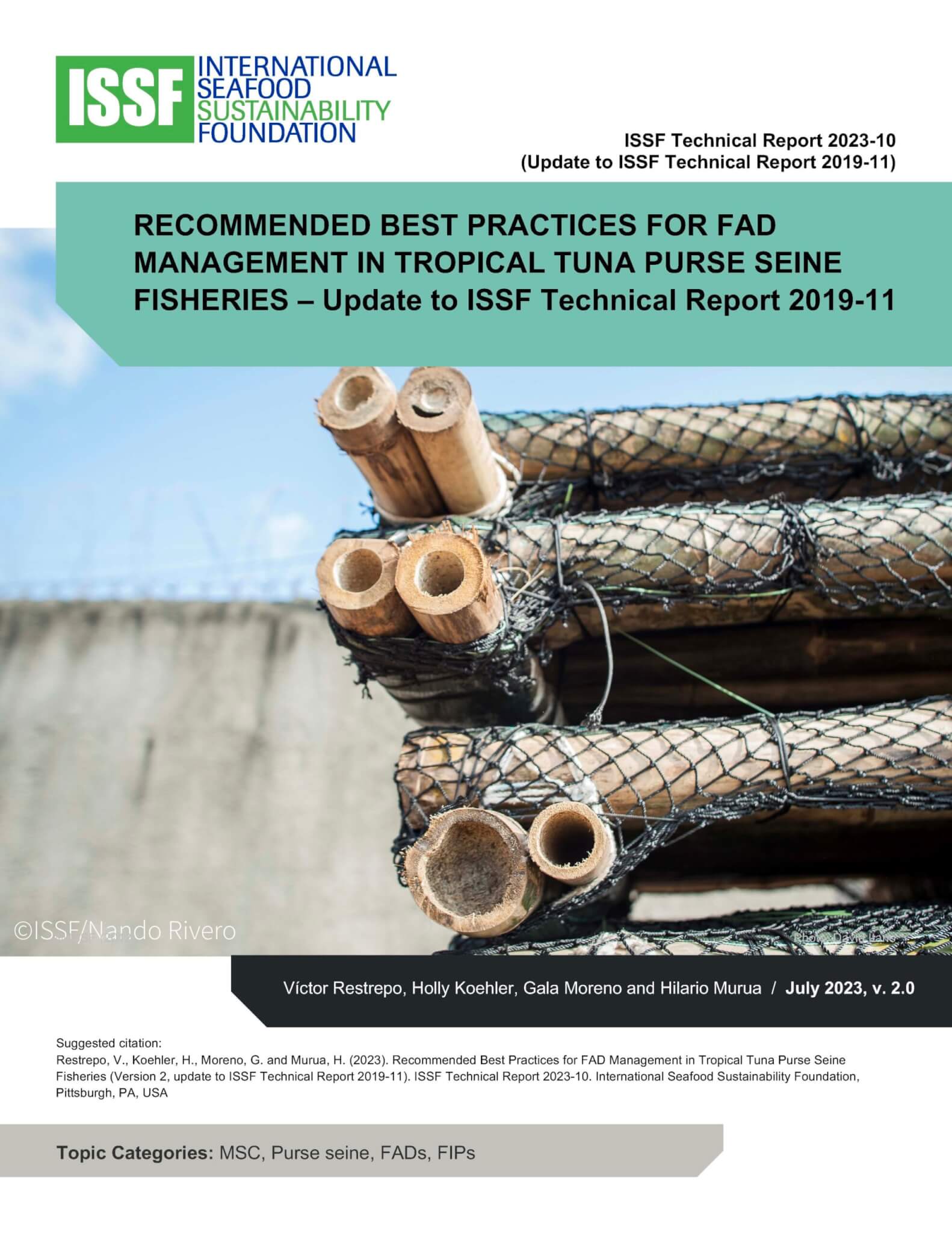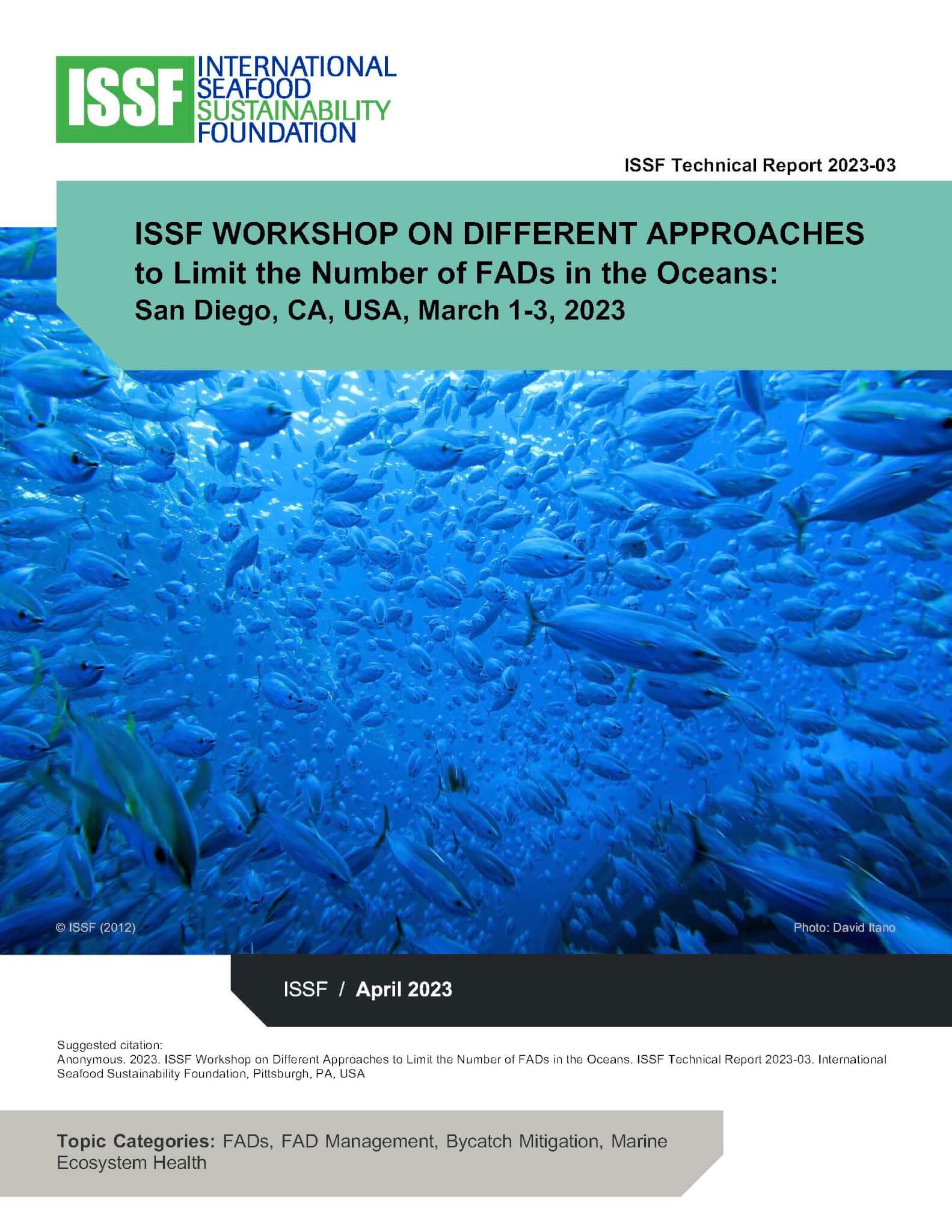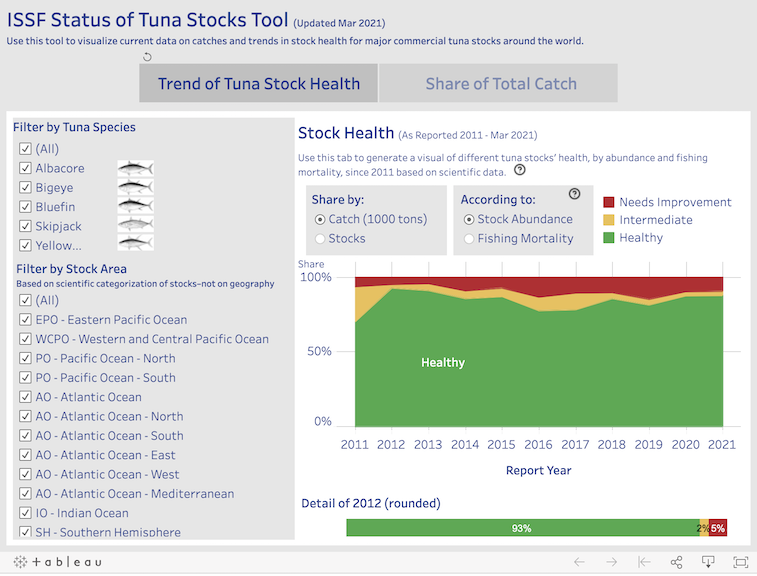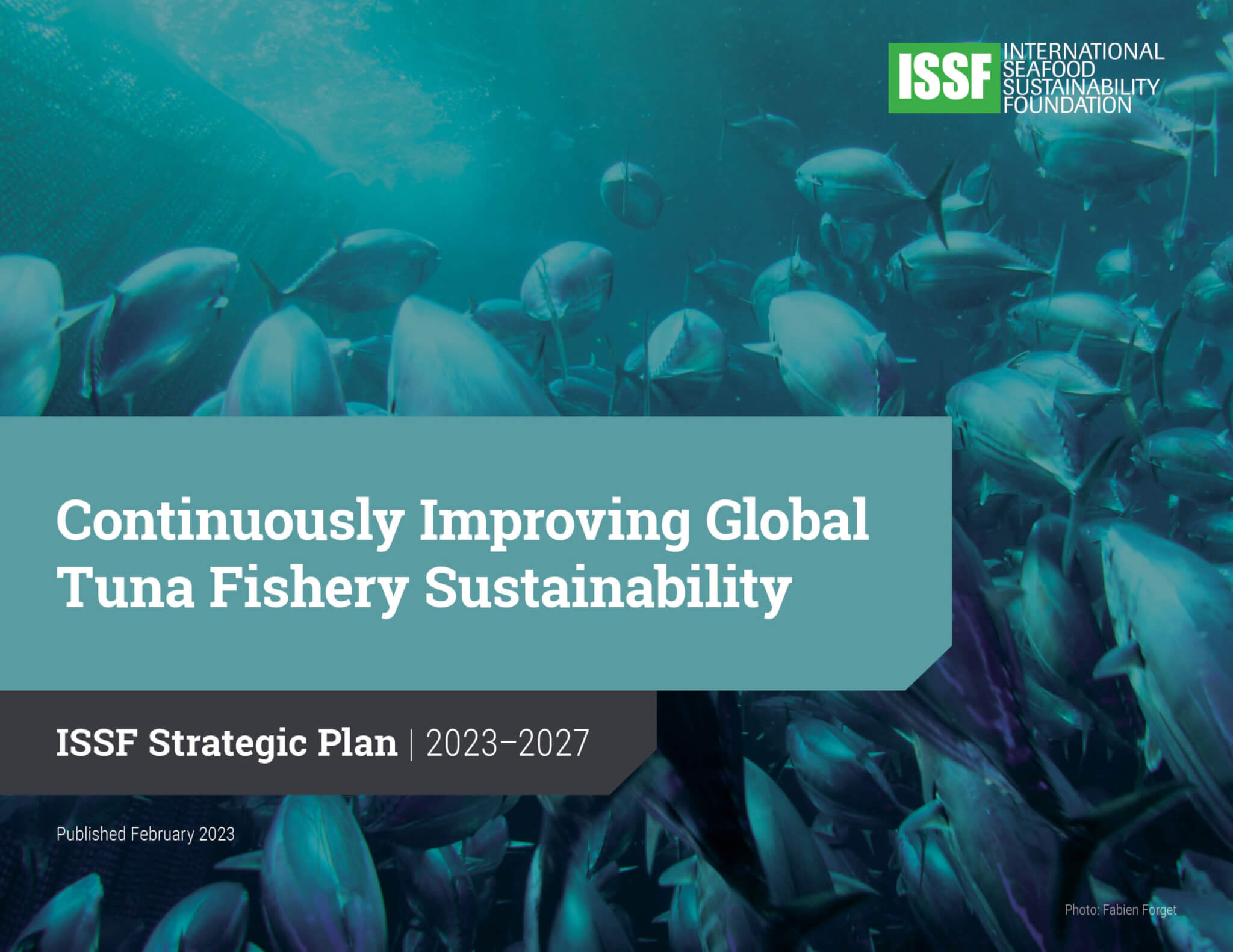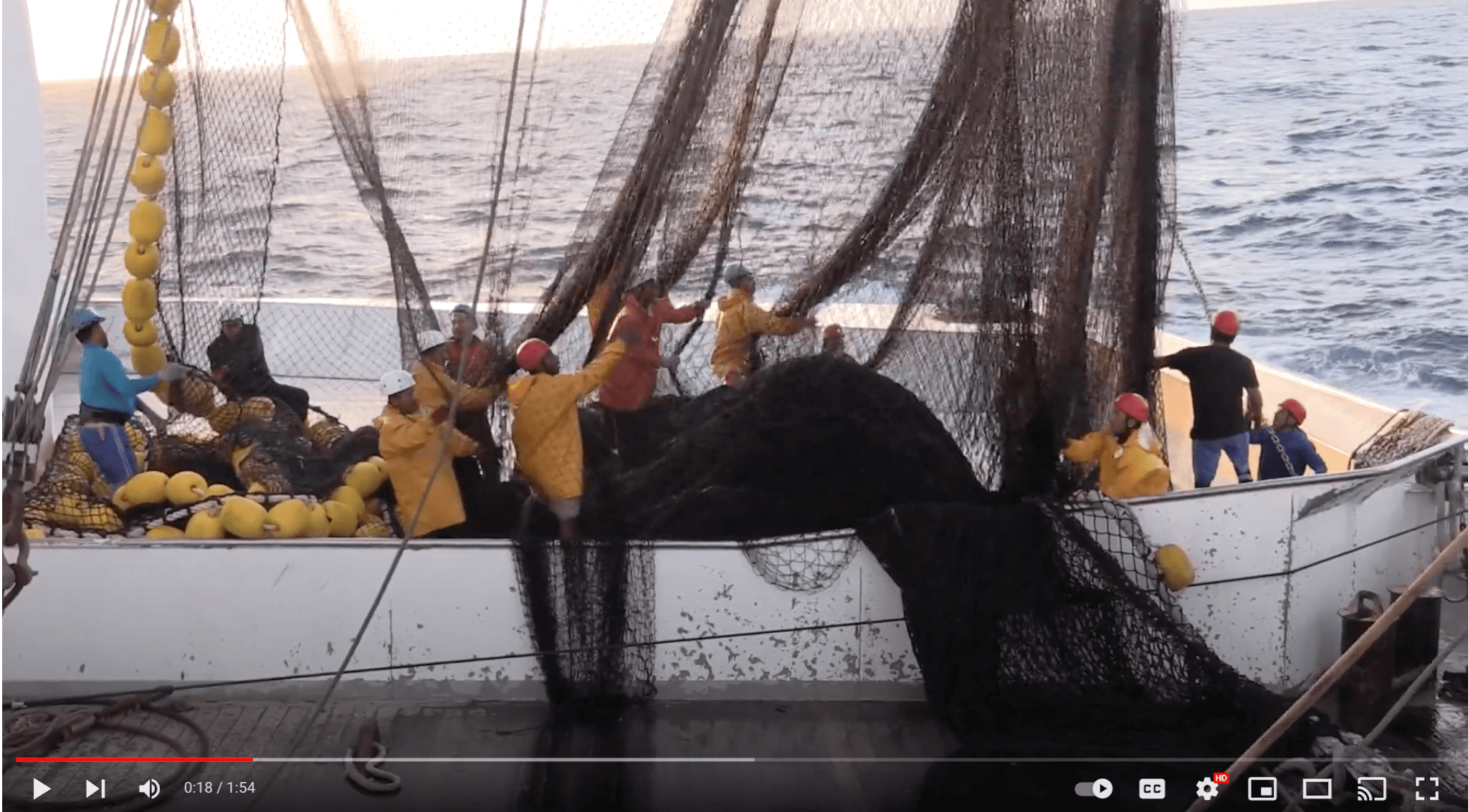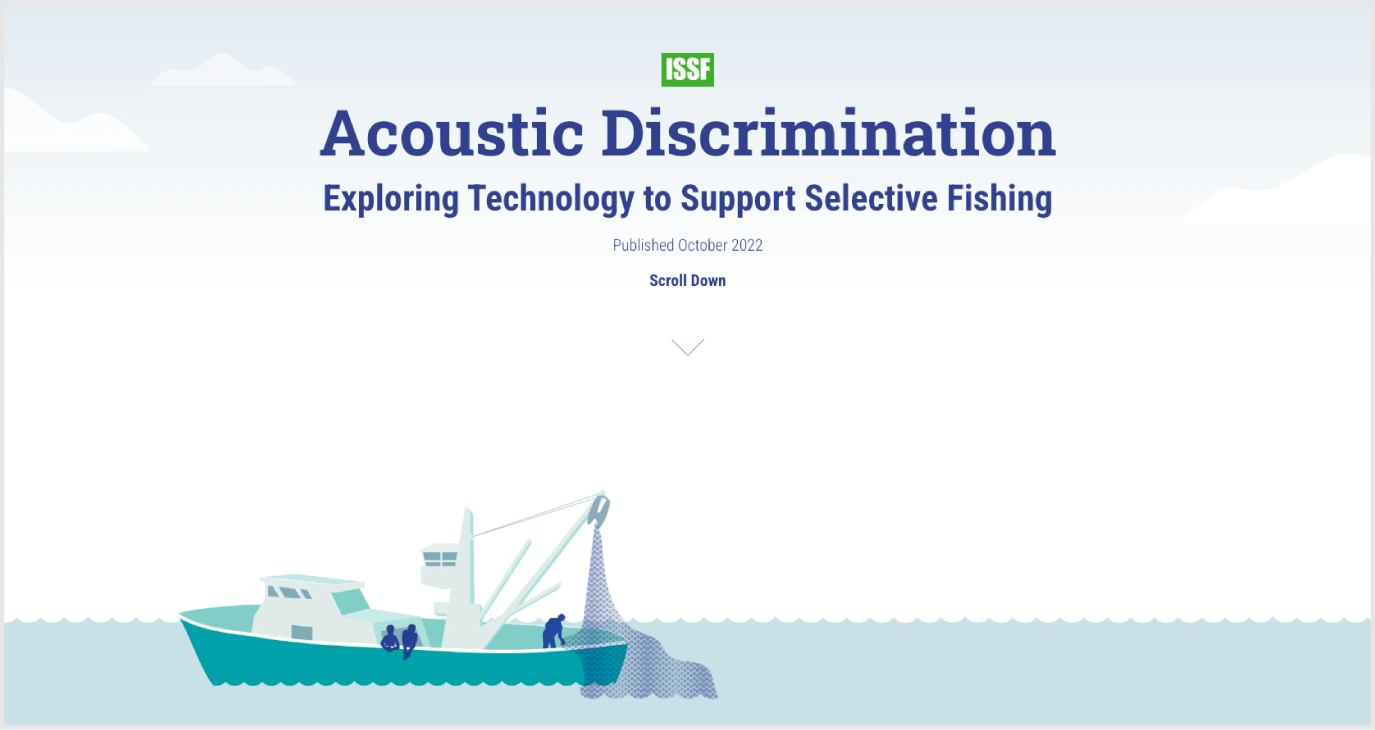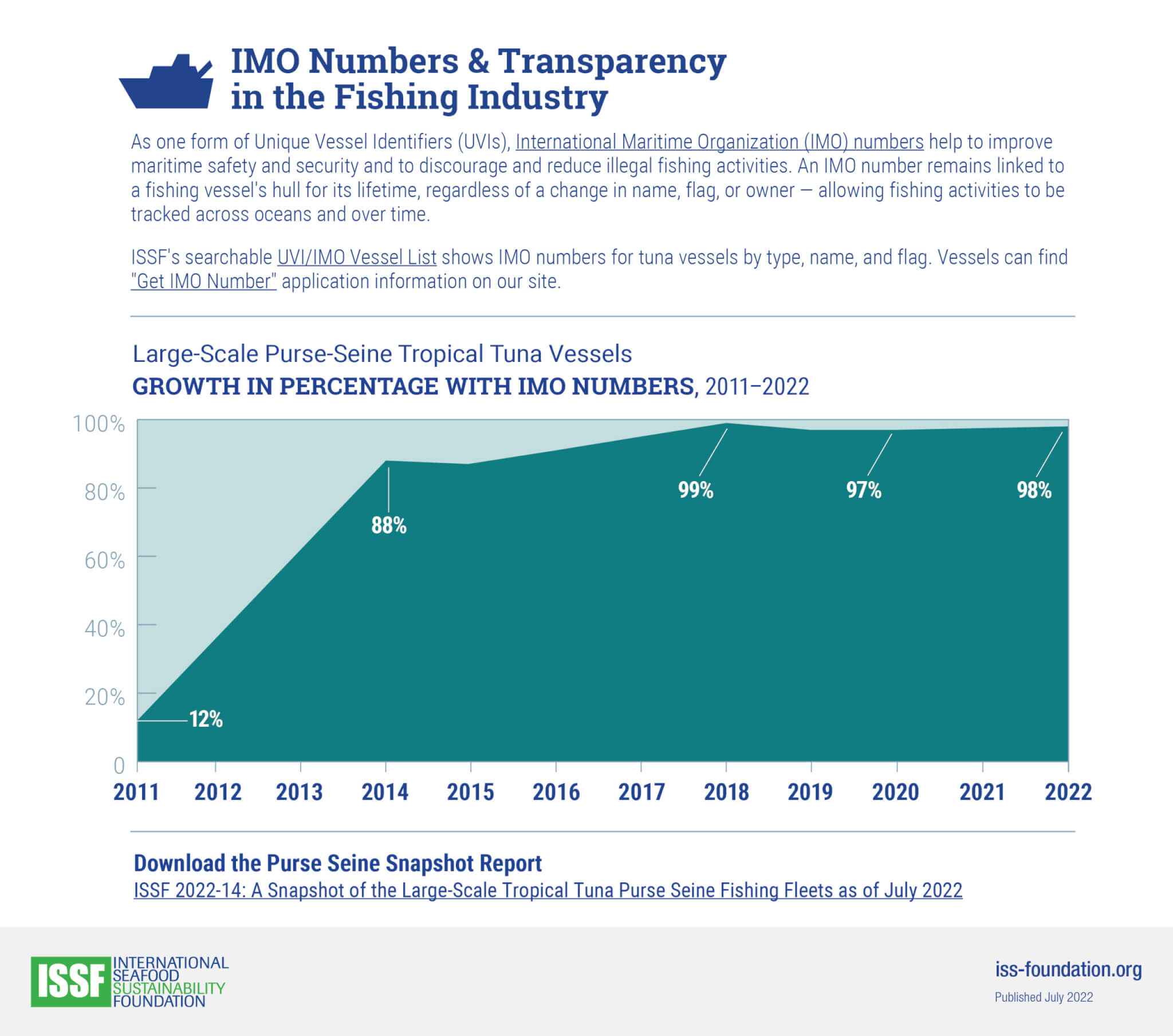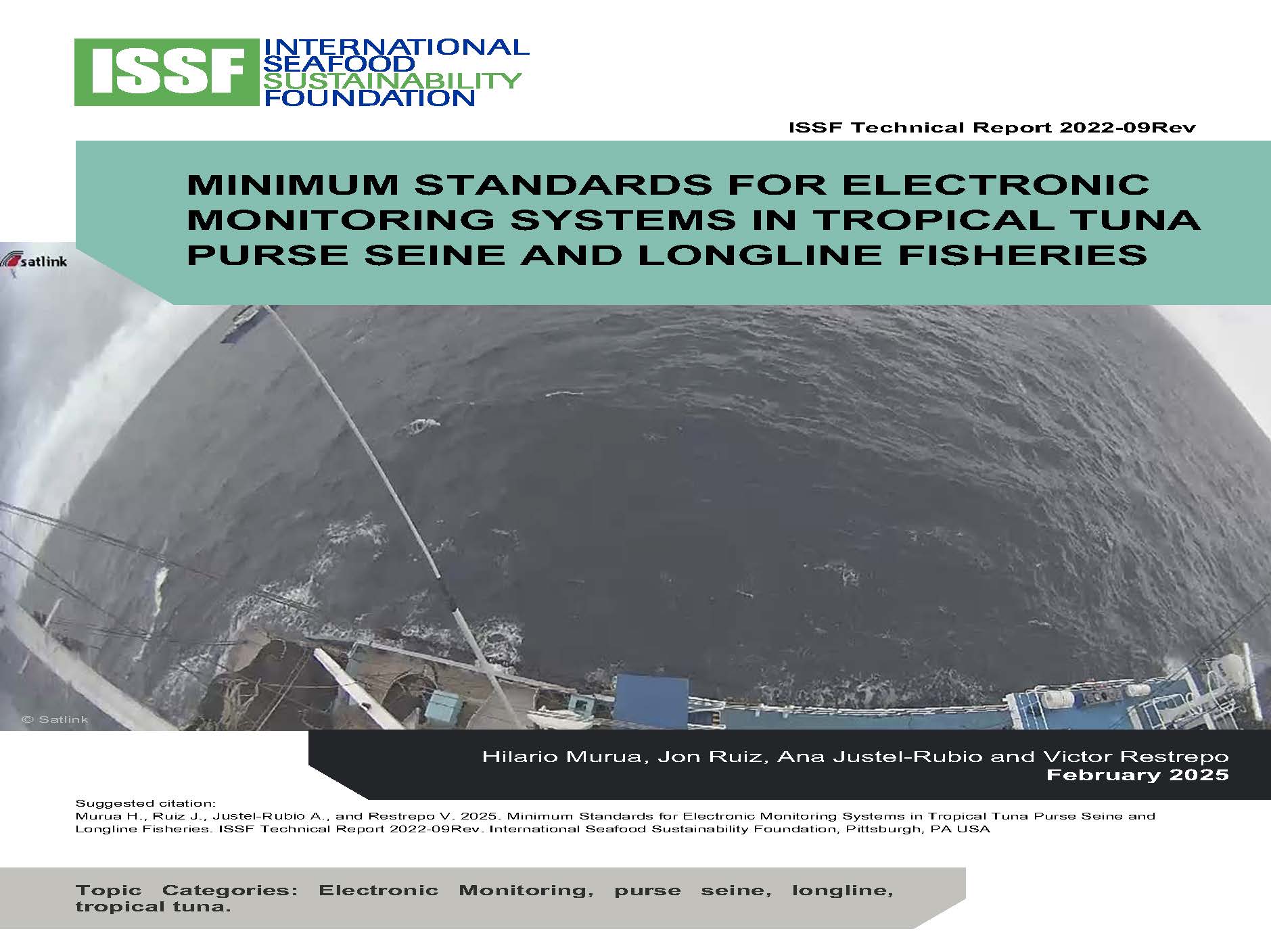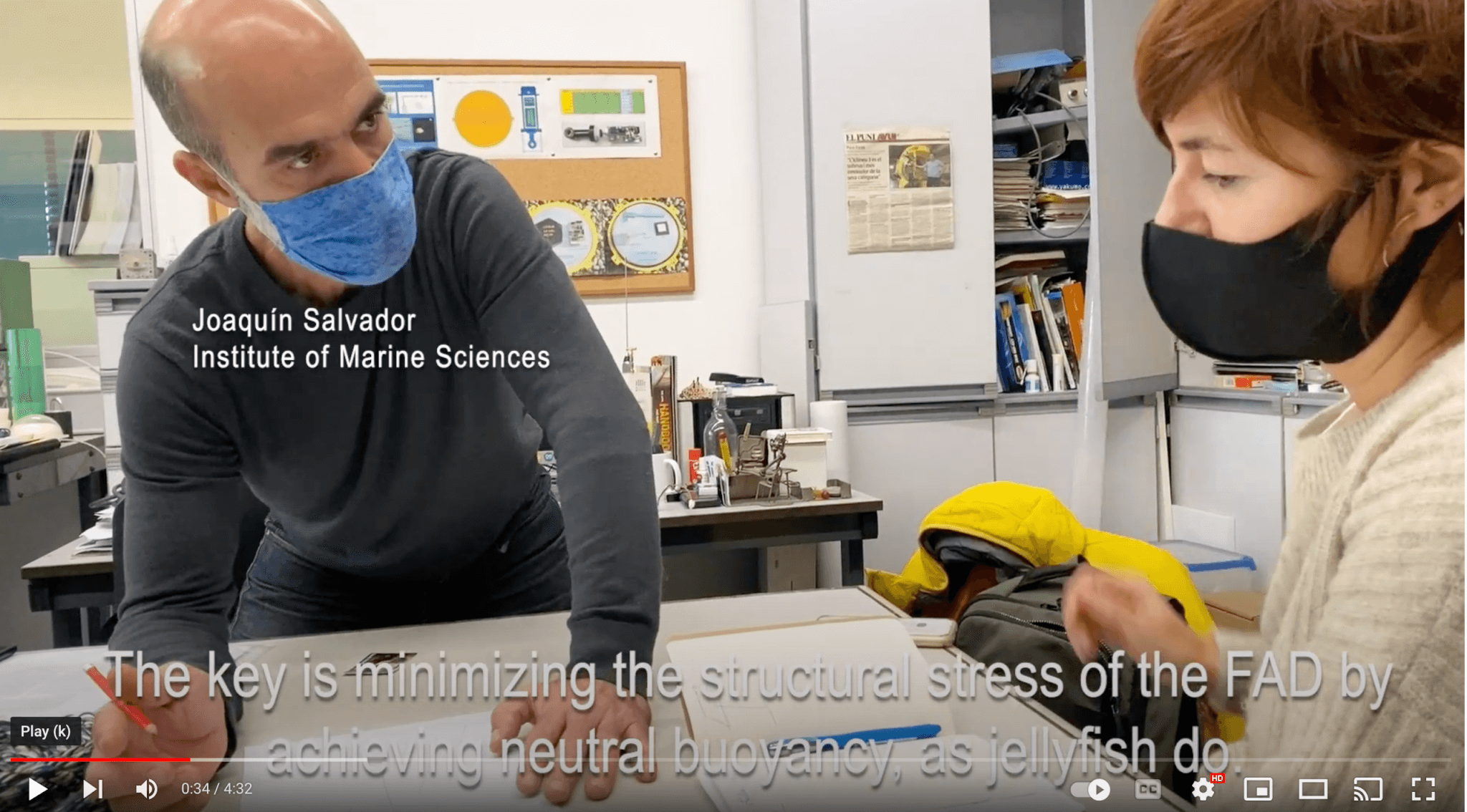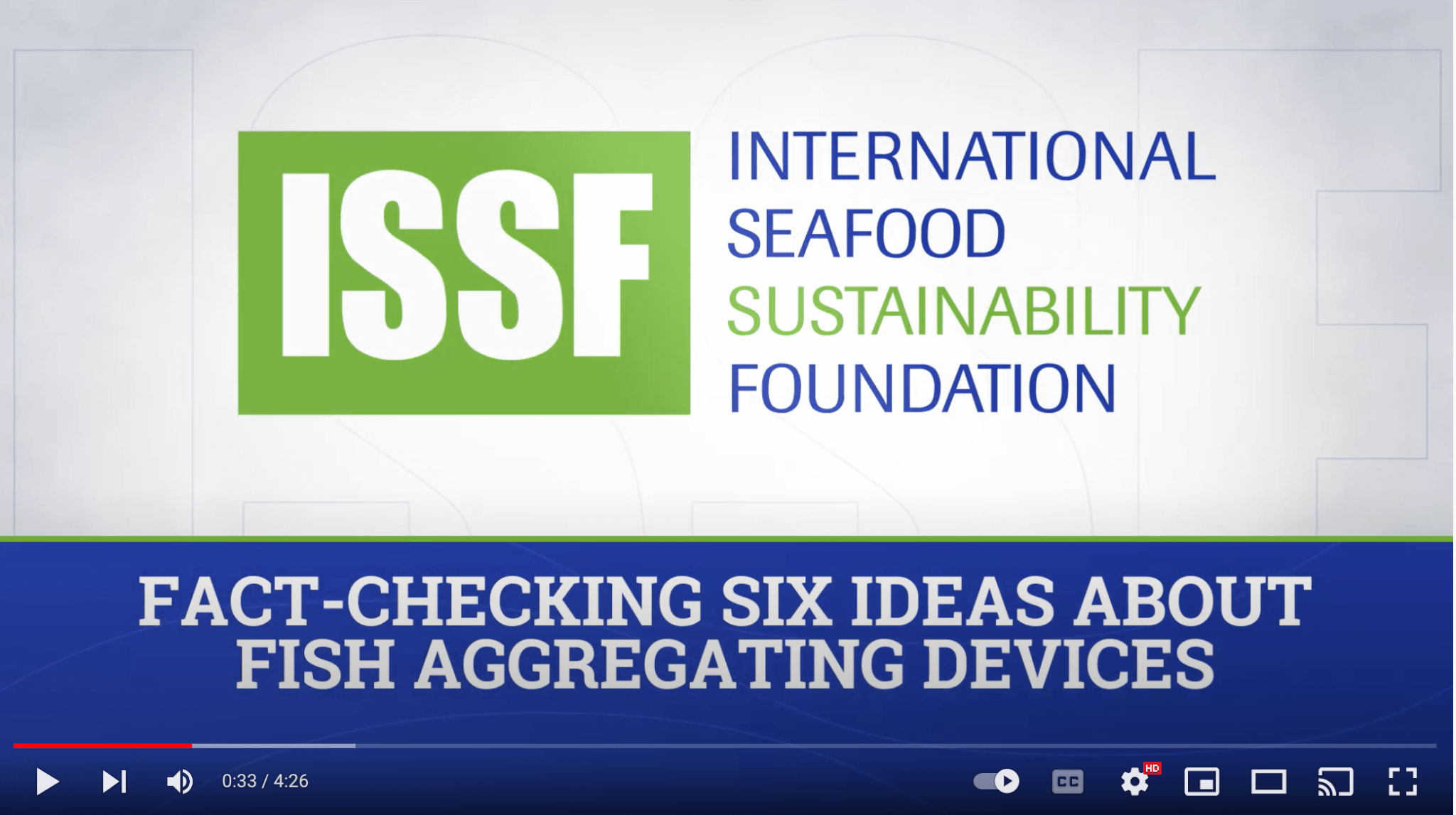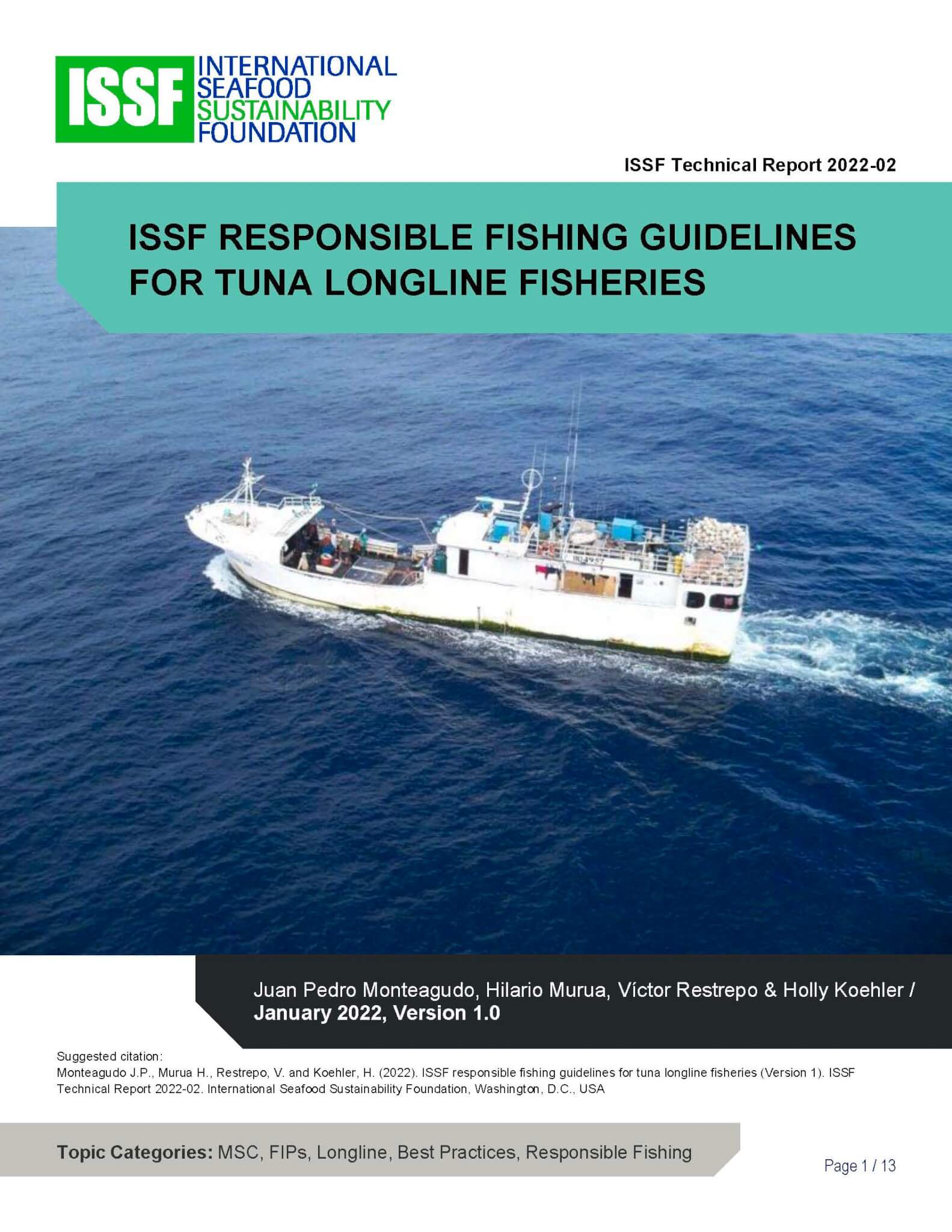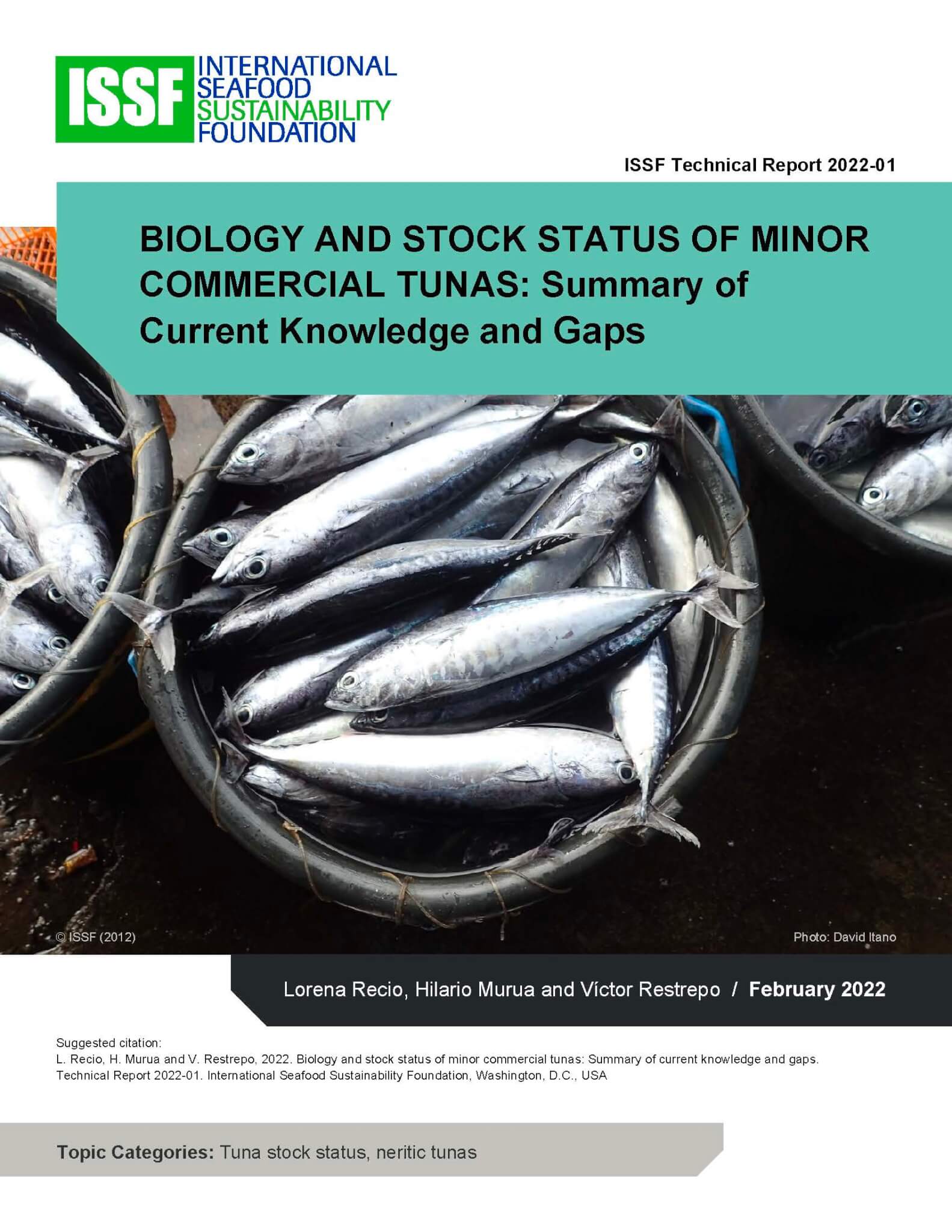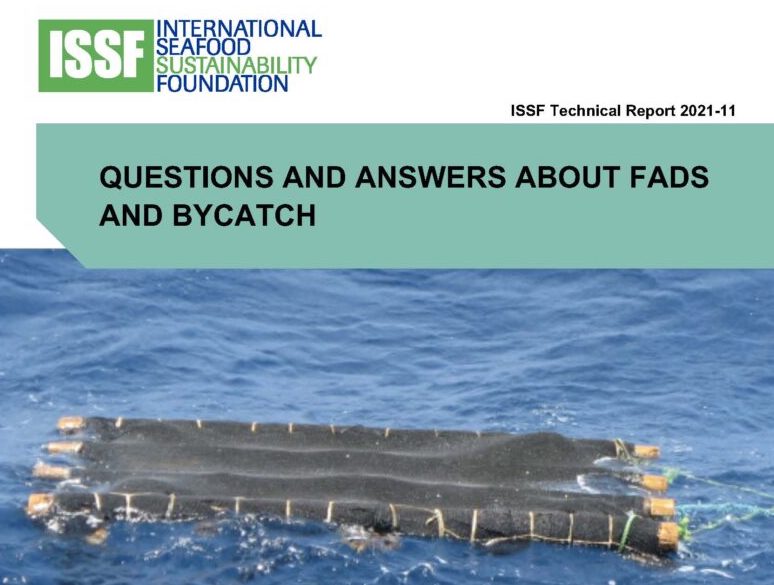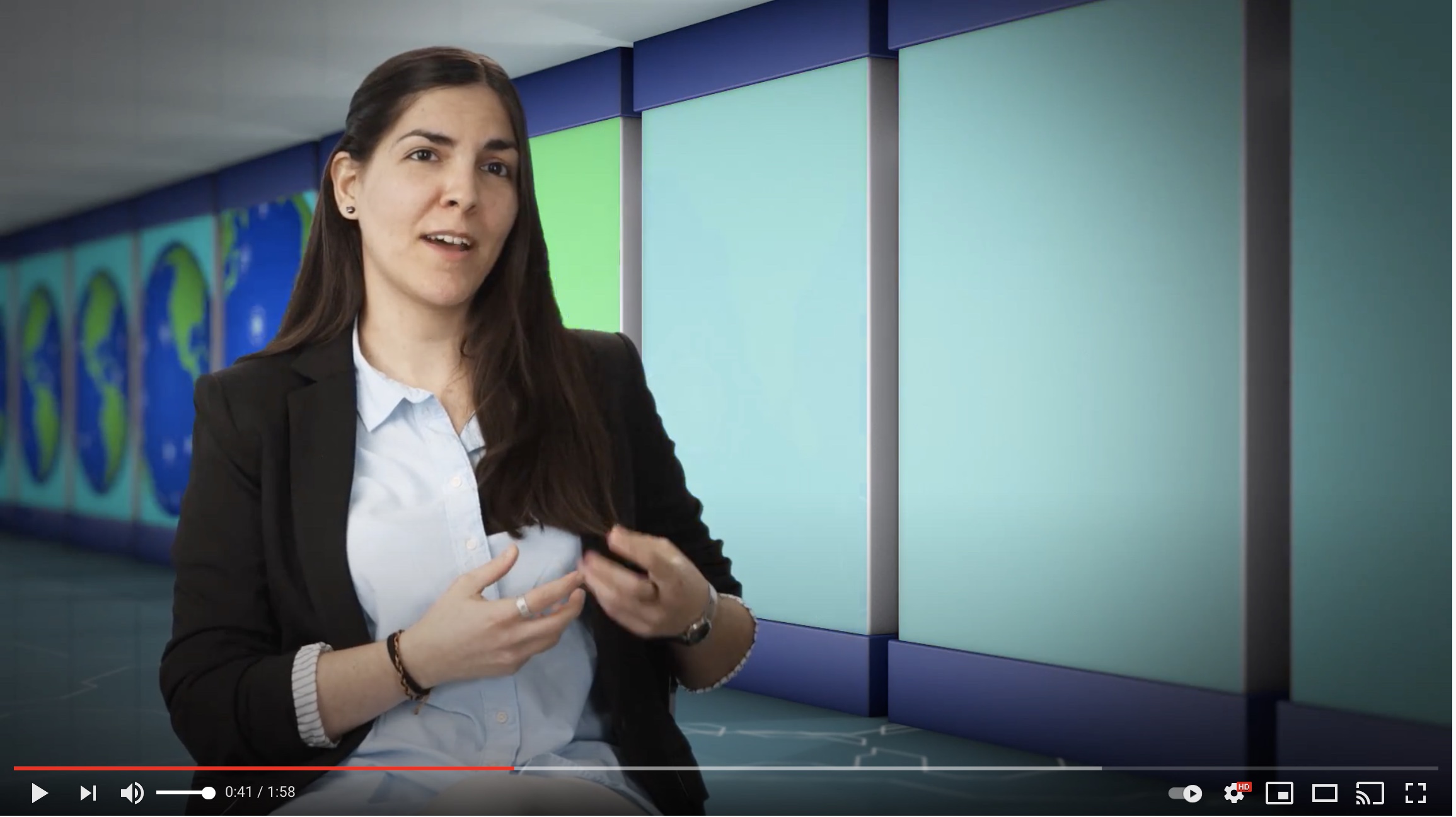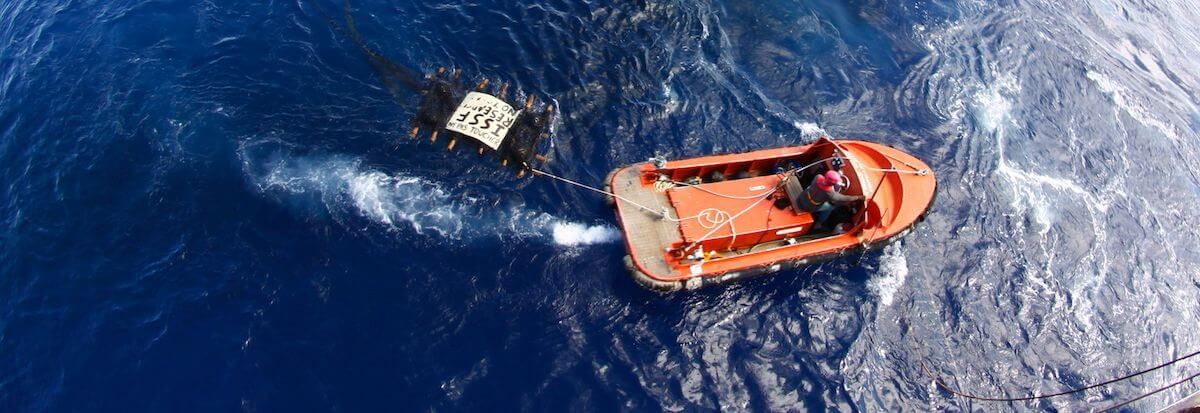
Research Overview
ISSF investigates and promotes science-based approaches for ensuring the long-term sustainability of global tuna stocks and the marine ecosystem.
The ISSF team works collaboratively with peer scientists, academics, environmental experts, governing bodies, and other stakeholders on issues where we can advance our understanding about sustainable fishing — and make a positive impact.
We publish reports, develop resources, and host events that support fishery health in key areas: tuna conservation, fish aggregating device (FAD) management, marine ecosystem health, bycatch reduction, capacity management, and illegal fishing prevention.
More than 70% of ISSF’s resources support original, collaborative research — including on the water and onboard tuna vessels, alongside fishers — conducted by fisheries and marine scientists.
OUR RESEARCH PUBLICATIONS

Scientific Reports
Our scientists document activities and insights from ISSF at-sea research projects, international workshops and meetings, and fisheries data analysis.

Best Practices Reports
In our best practices reports, we share ISSF science and policy recommendations for sustainable fisheries management, including to earn Marine Stewardship Council (MSC) certification.
Best-Practices Resources for Fishers
In addition to advocating best practices in fisheries management to RFMOs — through reports, snapshots, and other materials — ISSF develops best-practices resources for fishers, including skippers workshops and guidebooks and an illustrated guide for building jelly-FADs, which are both non-entangling and biodegradable.
OUR EXPERTISE & ACTIVITIES
At-Sea Research Projects
Our science team researches a variety of sustainable fishing approaches — such as biodegradable FADs like jelly-FADs and the acoustic discrimination of species at FADs — including in partnership with commercial fleets and research associations. We publish our findings in ISSF scientific reports and leading journals.
Data Collection & Analysis
We compile, evaluate, and publish data and findings that are useful to fisheries managers and other stakeholders, covering tuna stock status, FAD management, bycatch rates and mitigation efforts, electronic monitoring, purse-seine fleet capacity, and other topics. ISSF scientists also contribute to RFMO working groups and meetings.
MSC Fishery-Certification Support
ISSF best-practices research insights and reports can help fishers and other stakeholders — including participants in fishery improvement project (FIPs) — to better understand and follow practices to meet MSC fishery-certification criteria.
Skipper & Observer Resources
We lead workshops with tuna vessel skippers on bycatch mitigation techniques and offer sustainable-fishing guidebooks for observers and purse-seine, longline, and pole-and-line fishers.
RELATED RESOURCES
Research News
Browse our press releases and blog posts about ISSF scientific research activities, including new projects and publications.
Scientific Advisory Committee
The fisheries and marine scientists on ISSF’s Scientific Advisory Committee (SAC) help to guide our research activities and publications.
SAC members offer objective information and input to ISSF’s scientists, leadership, and Board of Directors on a volunteer basis.
RELATED NEWS
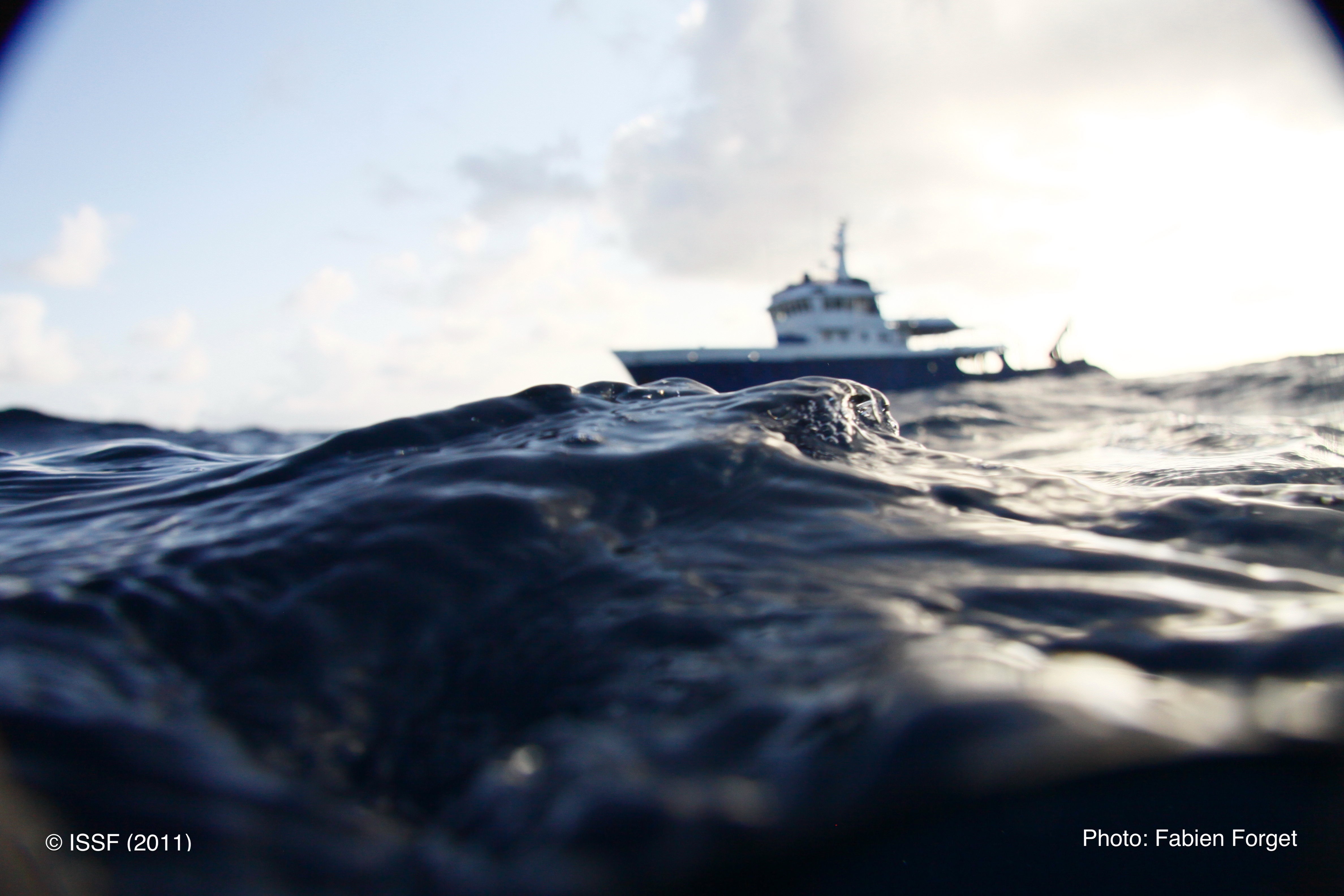
Maintaining Momentum for Sustainable Tuna Fisheries: The Need for Science-Based Conservation and Effective Monitoring in the Indian Ocean
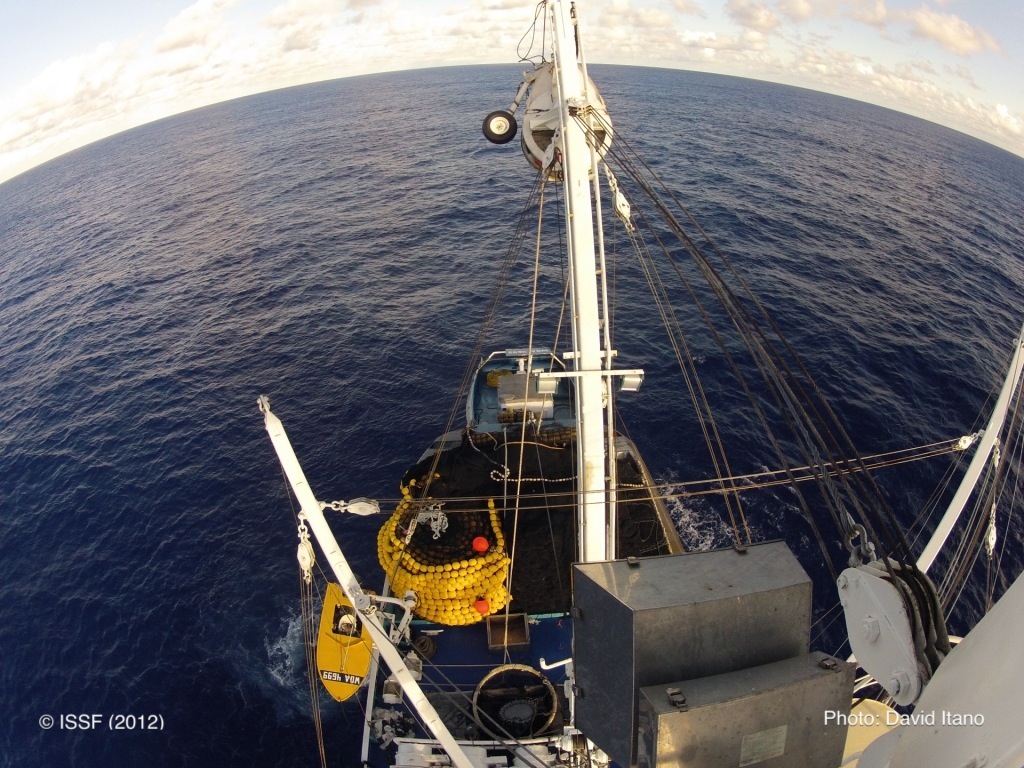
ISSF Welcomes Strong Outcomes for Western and Central Pacific Ocean Tuna Fisheries at Management Meeting, including the Adoption of Minimum Standards for Electronic Monitoring
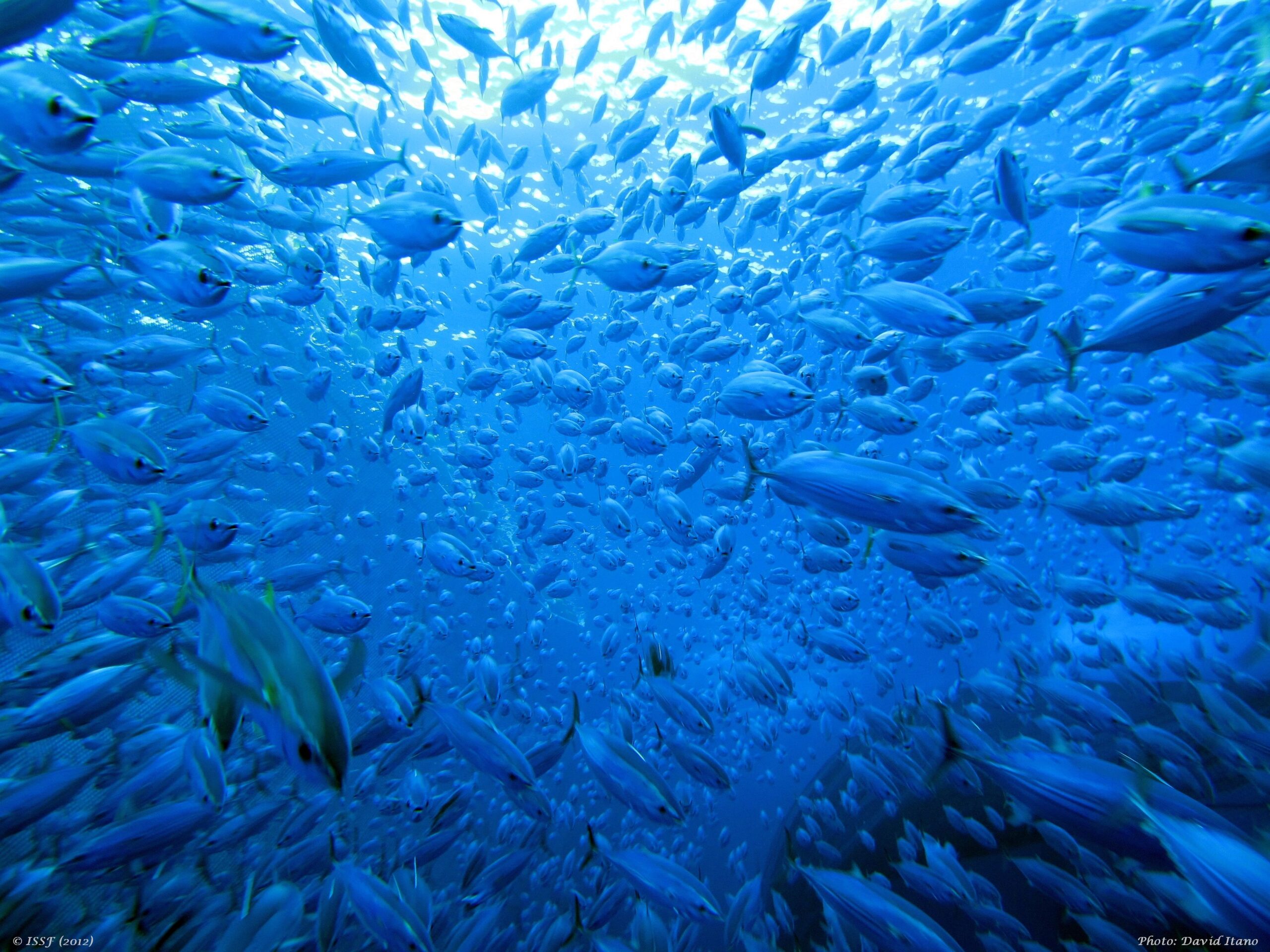
Strong Results at ICCAT Annual Session: New Tropical Tuna Measure and Management Procedure for Skipjack Tuna
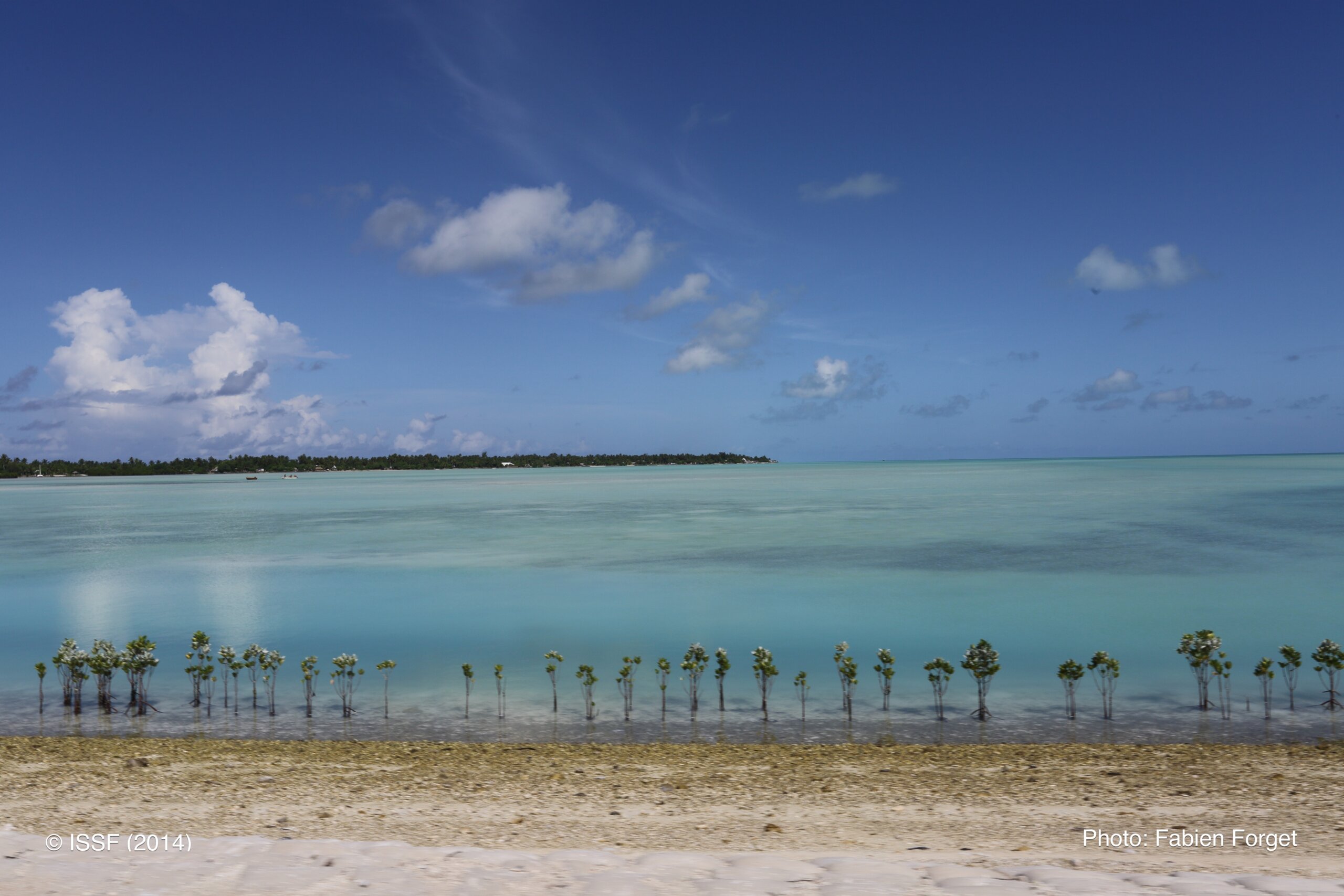
At Annual WCPFC Meeting, Pacific Fisheries Managers Must Boost Monitoring and Stock Sustainability
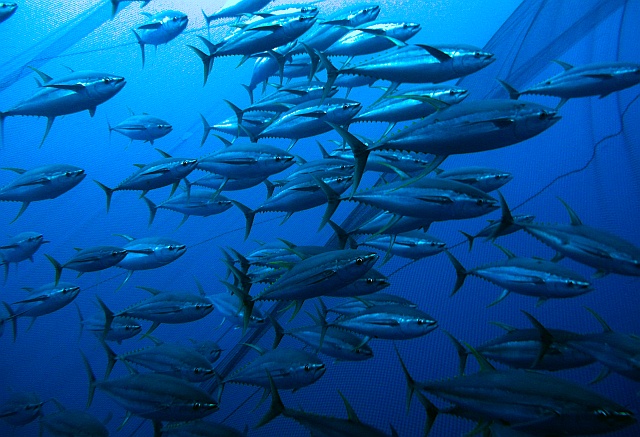
ICCAT Must Rebuild Atlantic Ocean Tuna Stocks and Expand Management Procedures

